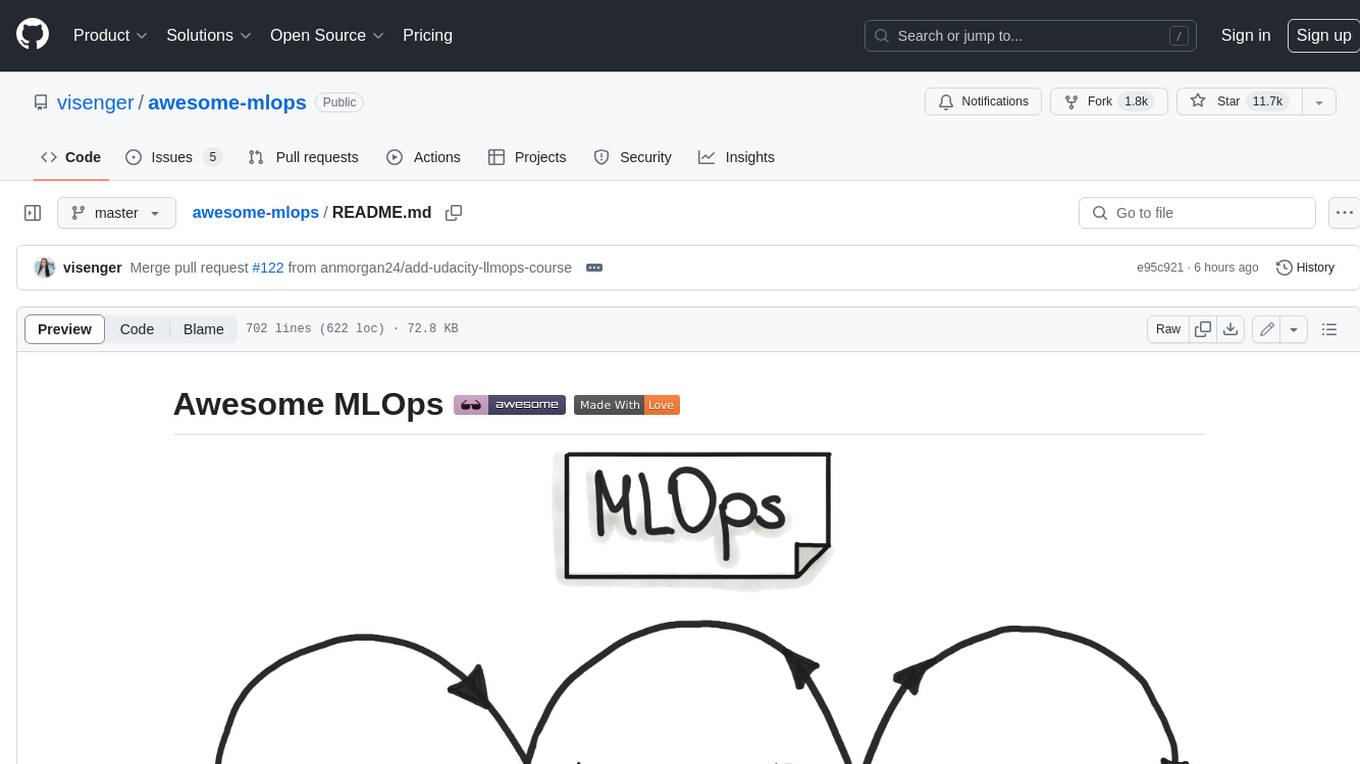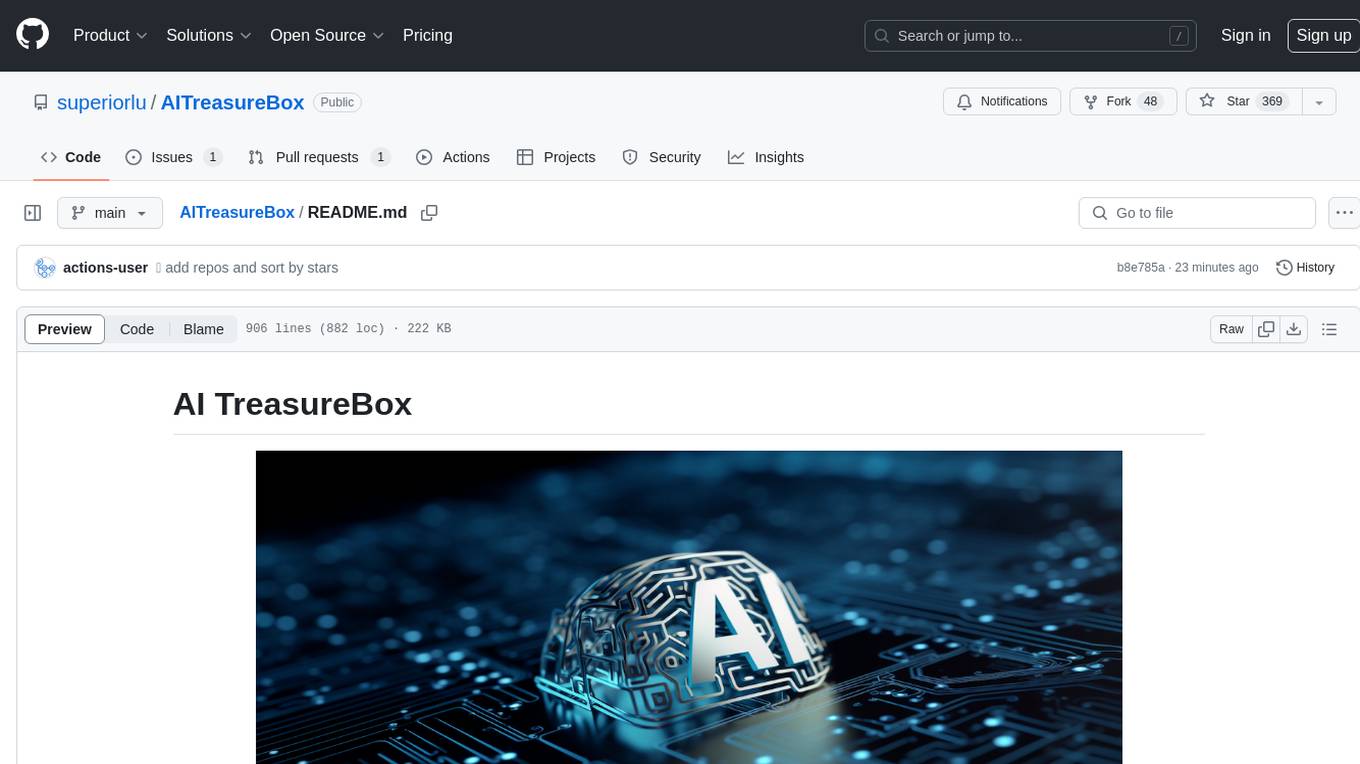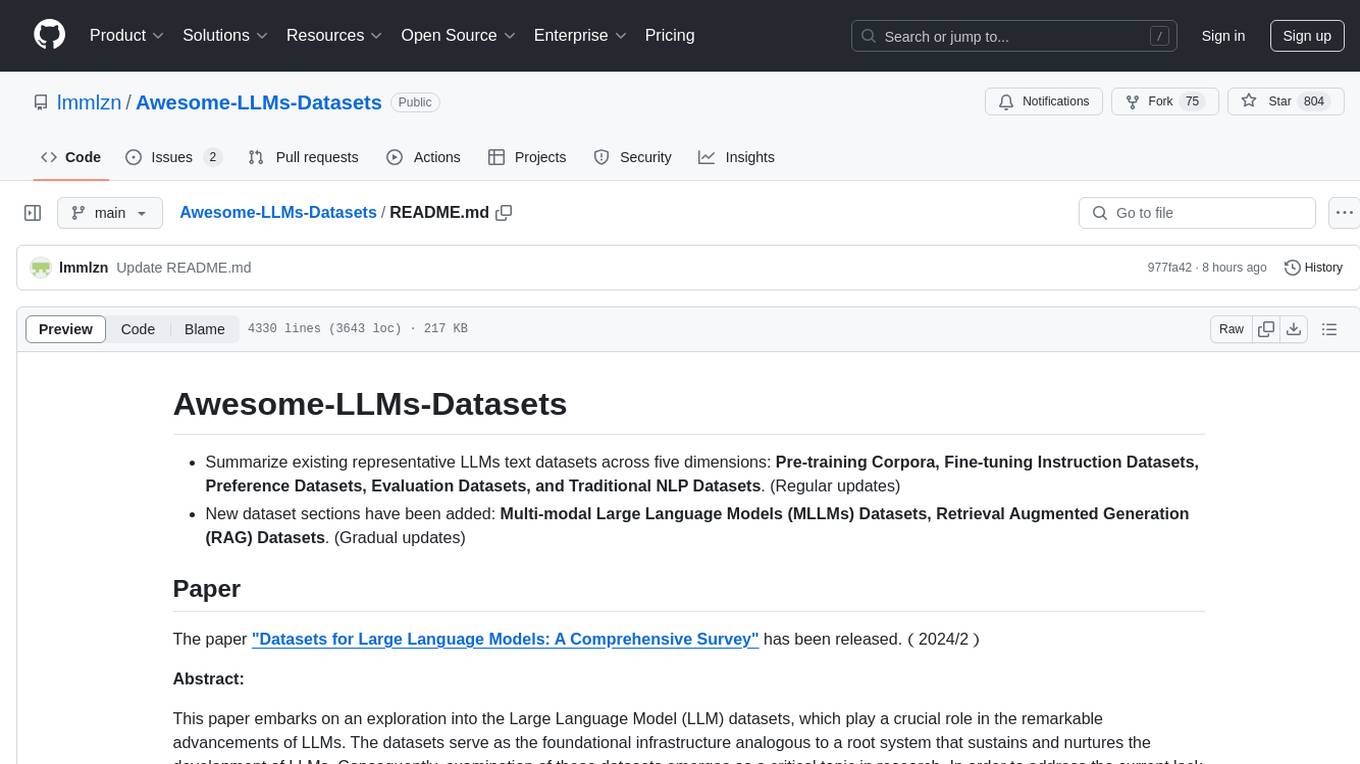Best AI tools for< Standardize Catalog >
20 - AI tool Sites
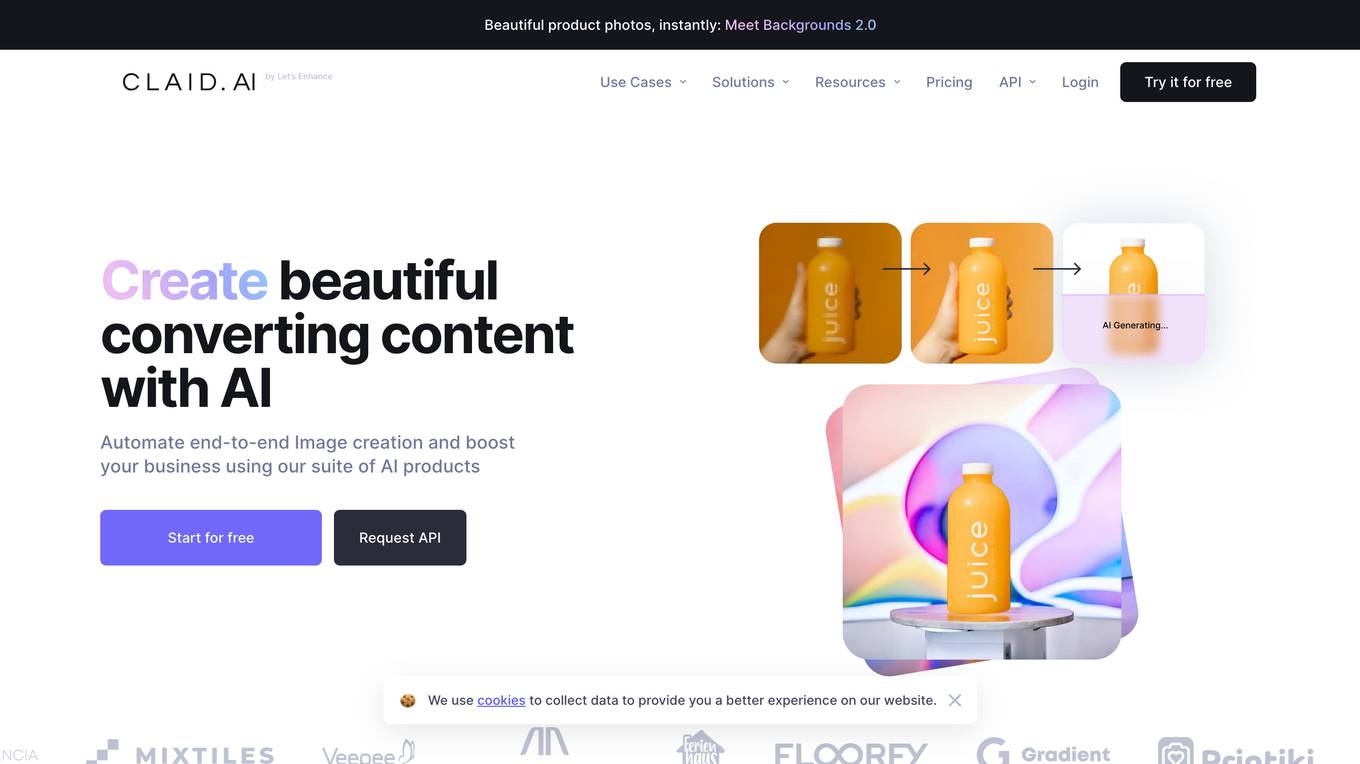
Claid.ai
Claid.ai is an AI product photography suite designed to help eCommerce businesses enhance their product images quickly and efficiently. The tool offers guided background removal, color correction, and image upscaling features to transform ordinary product photos into high-quality marketing images. With Claid.ai, users can achieve consistency in their product catalog, improve conversions with enhanced images, and save time on editing tasks. The tool is trusted by over 10 million eCommerce images to elevate their visual content and boost online sales.
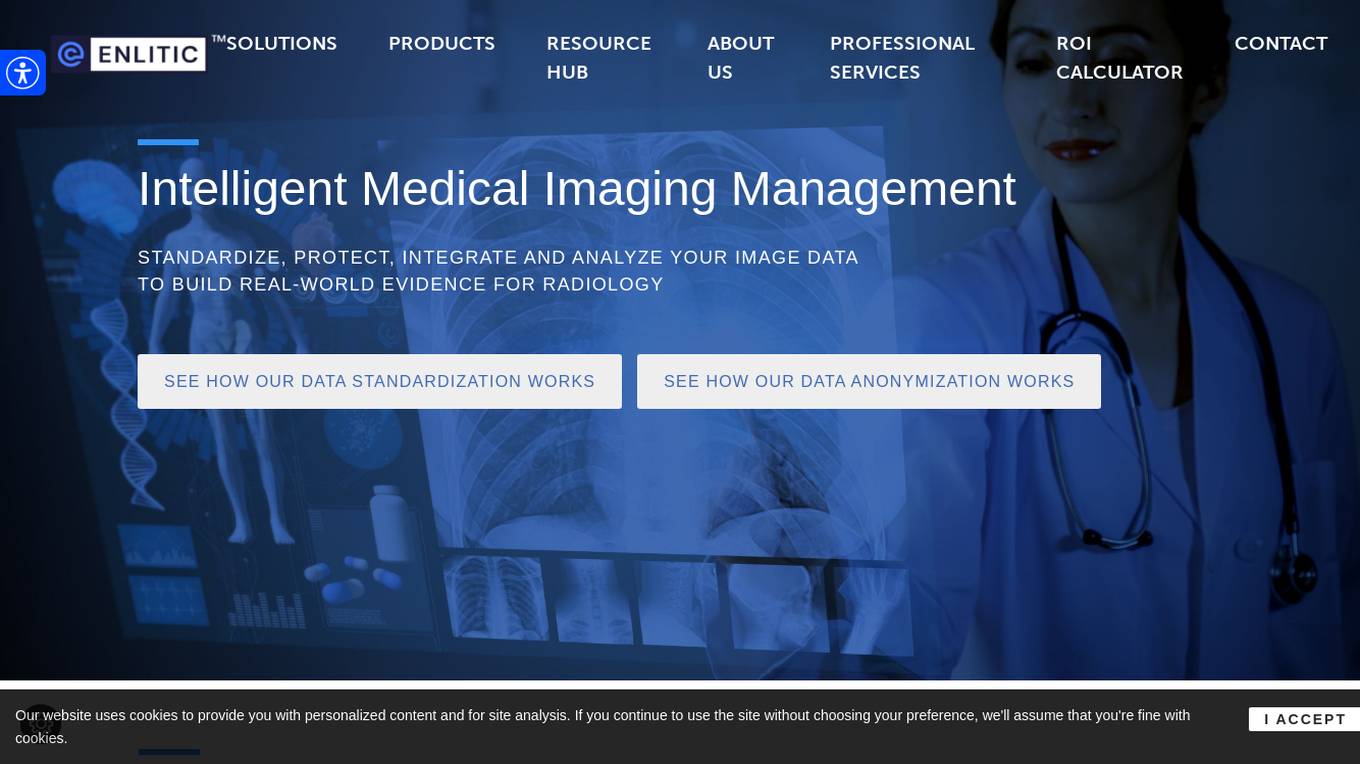
Enlitic
Enlitic provides healthcare data solutions that leverage artificial intelligence to improve data management, clinical workflows, and create a foundation for real-world evidence medical image databases. Their products, ENDEX and ENCOG, utilize computer vision and natural language processing to standardize, protect, and analyze medical imaging data, enabling healthcare providers to optimize workflows, increase efficiencies, and expand capacity.

Claravine
Claravine is an AI tool that creates shared language and standards for marketing data. It eliminates flawed data, conflict, and the blame game by ensuring data accuracy, improving accountability, and building trust. The platform helps enterprise brands and agencies deliver on the promise of modern marketing by consistently creating and applying data standards. With features like defining standards, applying standards, and connecting standards, Claravine maximizes campaign and technology investments to drive better results. Customers report significant improvements in return on ad spend, data compliance, and time spent on manual data processes. The platform enables global collaboration, automates data flows, and adapts quickly to changing business needs. Trusted by global brands, Claravine provides visibility into campaign performance, data consistency across organizations, and a single source of truth for marketing data.
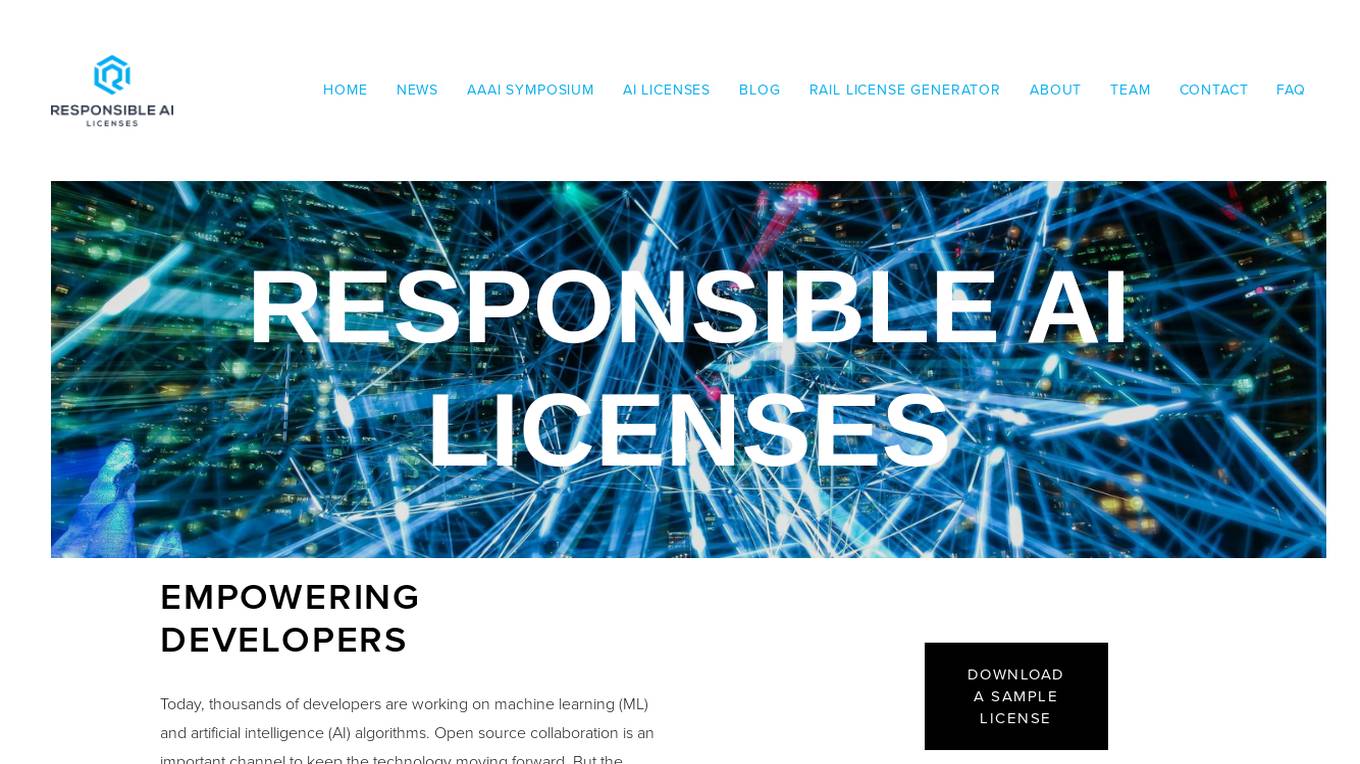
Responsible AI Licenses (RAIL)
Responsible AI Licenses (RAIL) is an initiative that empowers developers to restrict the use of their AI technology to prevent irresponsible and harmful applications. They provide licenses with behavioral-use clauses to control specific use-cases and prevent misuse of AI artifacts. The organization aims to standardize RAIL Licenses, develop collaboration tools, and educate developers on responsible AI practices.
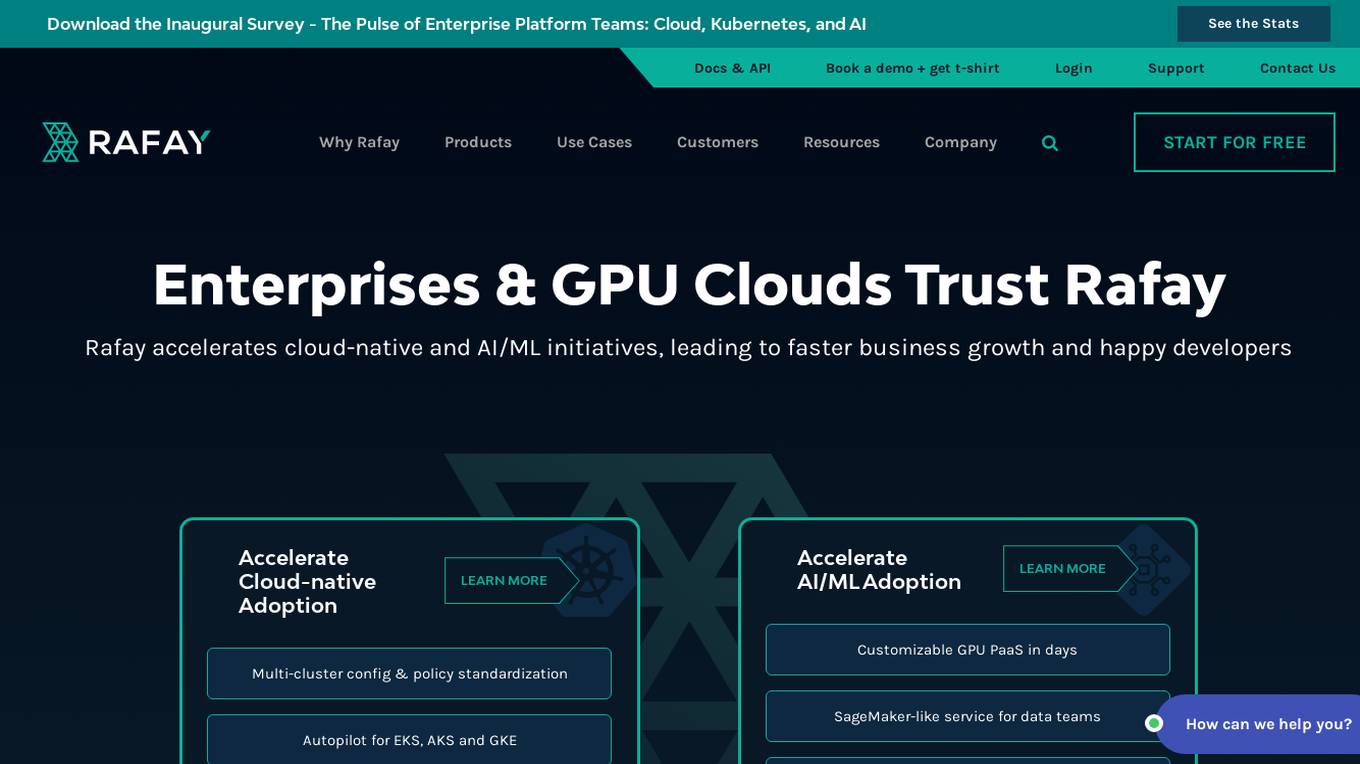
Rafay
Rafay is an AI-powered platform that accelerates cloud-native and AI/ML initiatives for enterprises. It provides automation for Kubernetes clusters, cloud cost optimization, and AI workbenches as a service. Rafay enables platform teams to focus on innovation by automating self-service cloud infrastructure workflows.
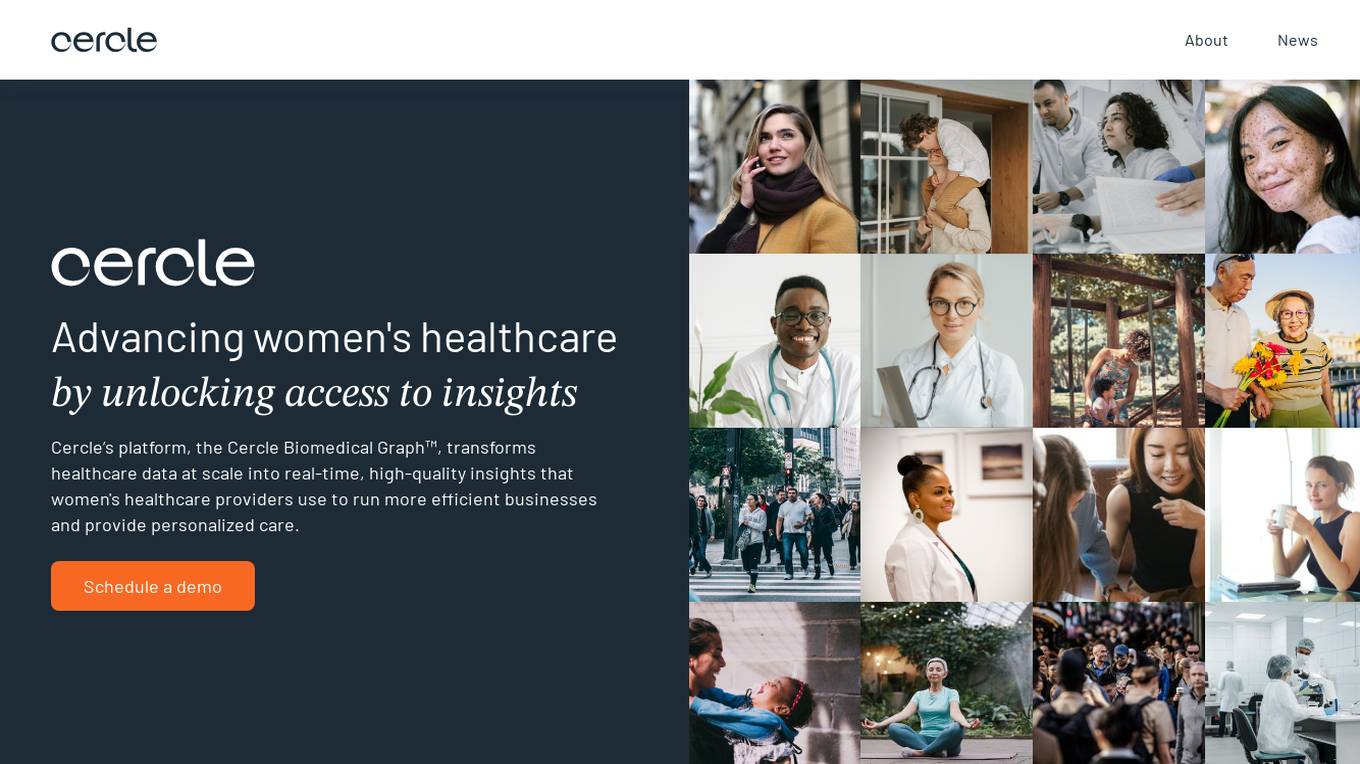
Cercle
Cercle is an AI platform that advances healthcare for women by transforming healthcare data into real-time, high-quality insights. The platform caters to women's healthcare providers, payors, and pharma companies, helping them run more efficient businesses and provide personalized care. Cercle's Biomedical Graph unlocks insights at unprecedented speed and accuracy, optimizing patient care and improving outcomes in areas such as assisted reproduction and fertility processes.
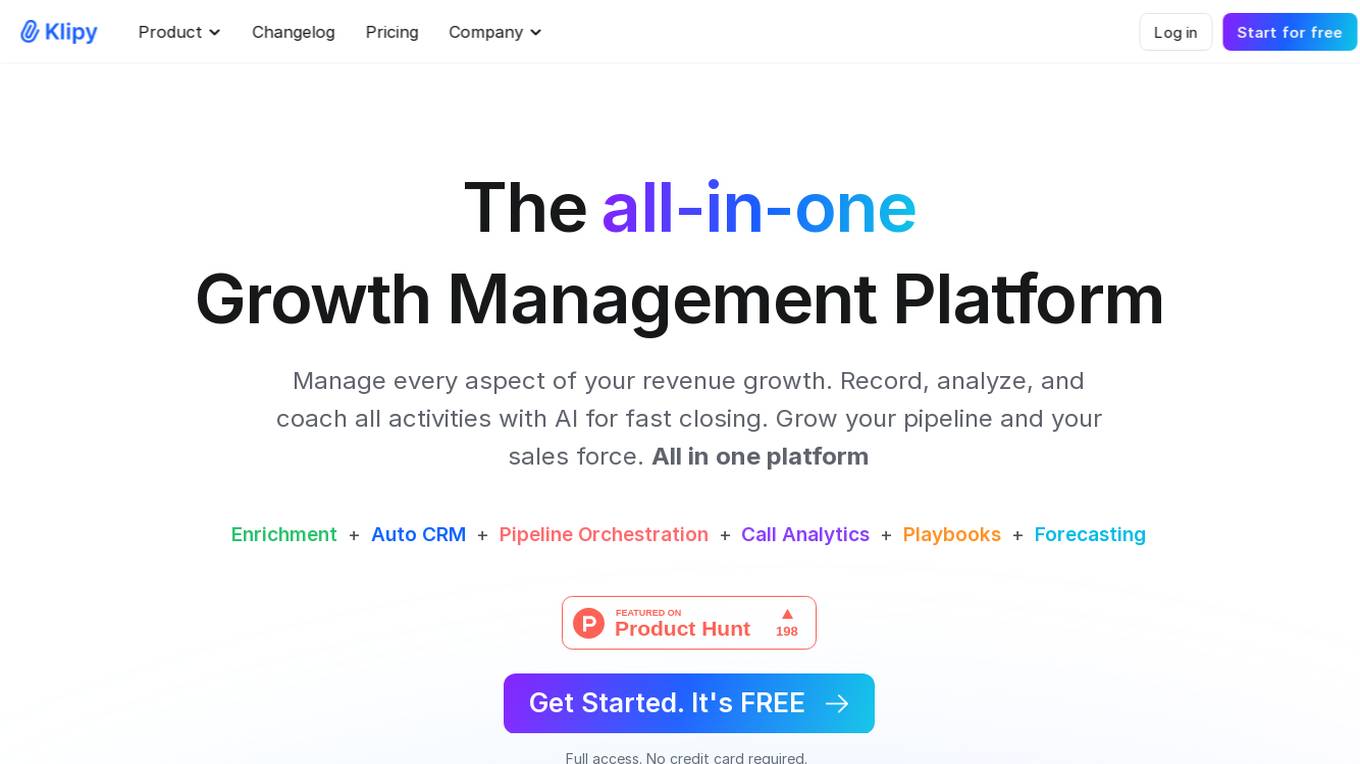
Klipy
Klipy is an AI-powered CRM platform that offers a comprehensive solution for managing all aspects of revenue growth. From automating manual tasks to providing insights through AI analytics, Klipy helps businesses streamline their sales processes and enhance customer relationships. The platform is designed to enrich, log, and organize deal flows, while also offering features like call analytics, playbooks, and pipeline orchestration. Klipy is trusted by various companies and is known for its security measures, ensuring data protection through encryption and anonymization. With a focus on growth operations management, Klipy aims to simplify the sales enablement process and improve customer loyalty.
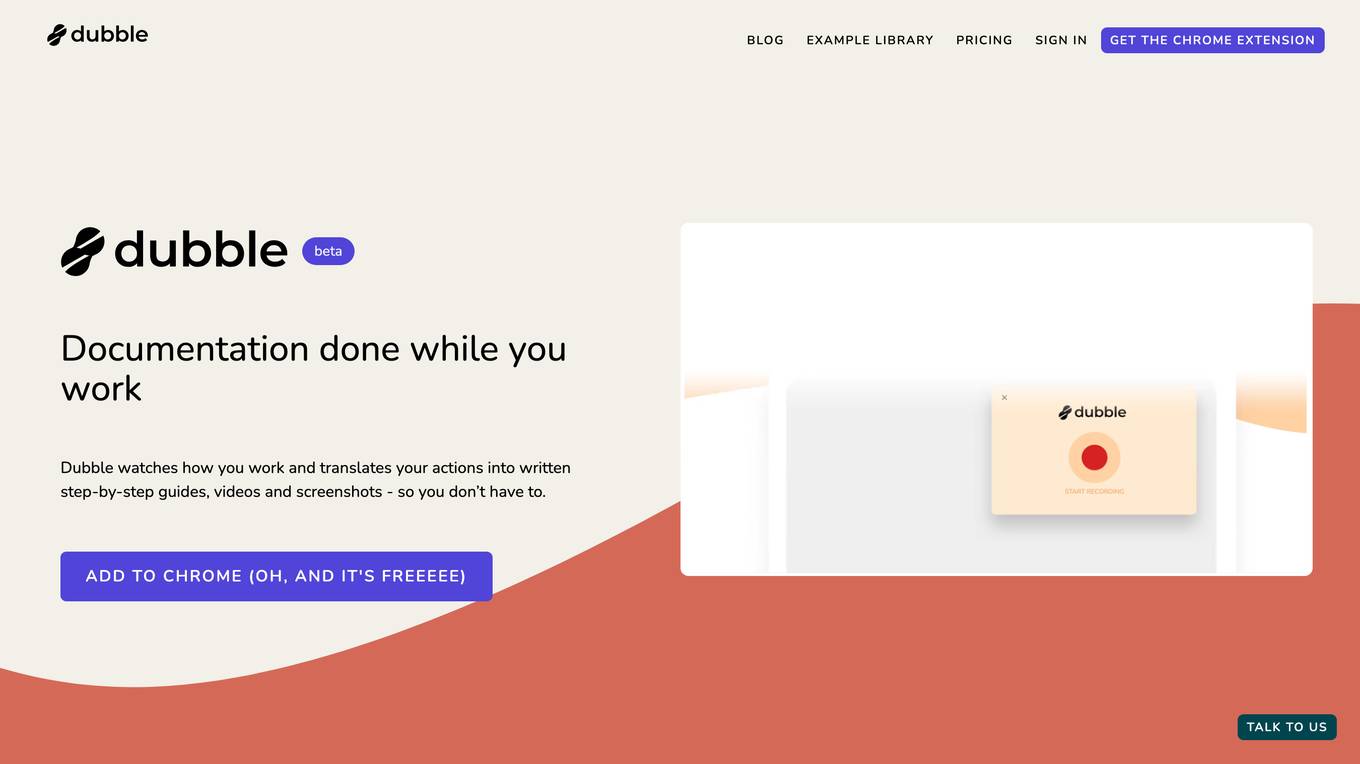
Dubble
Dubble is a free tool that helps you create step-by-step guides, tutorials, and onboarding resources for your processes. It uses AI to watch how you work and translate your actions into written instructions and screenshots. This makes it easy to document your processes without having to write anything yourself.
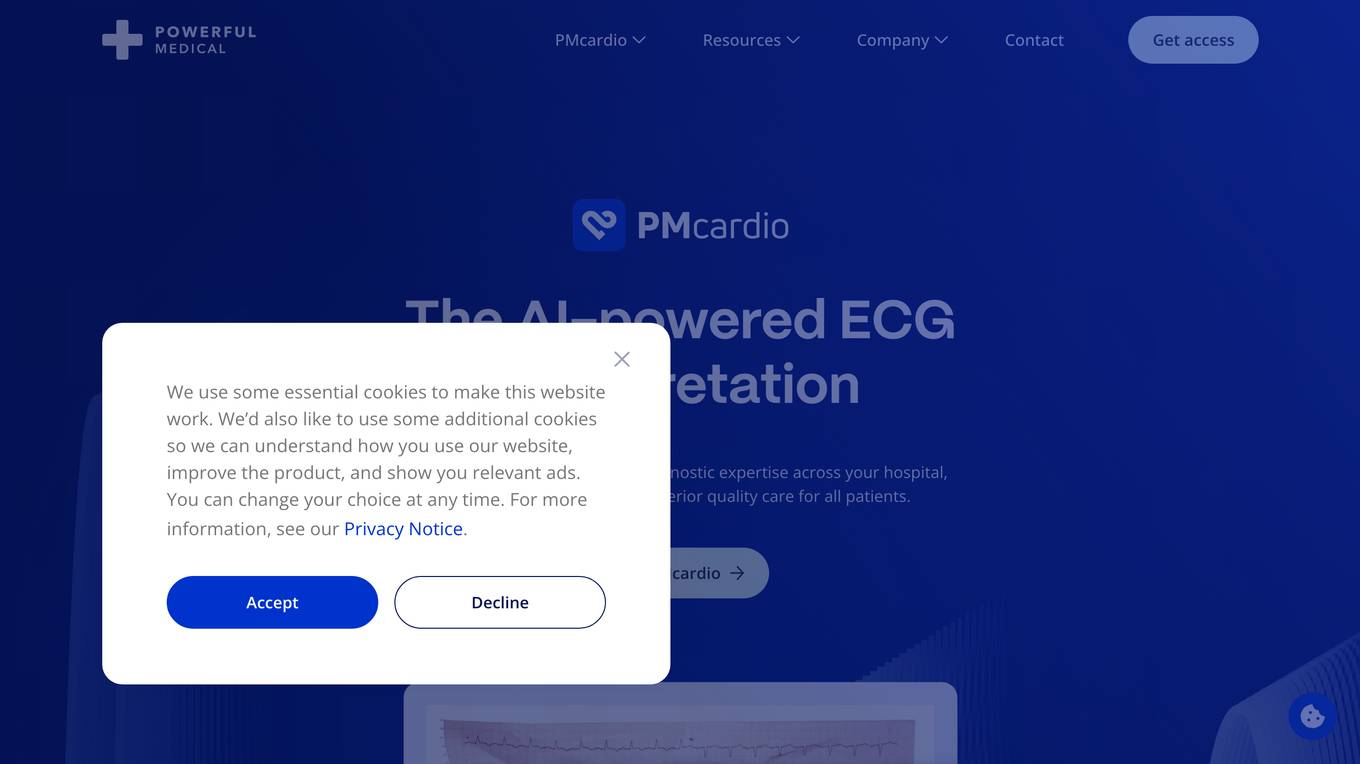
PMcardio
PMcardio is an AI-powered ECG interpretation platform that offers accurate diagnosis of cardiovascular diseases within seconds. It provides rapid referral to specialists, detects occlusion myocardial infarction, and identifies reduced left ventricular ejection fraction from 12-lead ECGs. PMcardio enhances clinical decision-making, standardizes ECG reports, and ensures data security. The platform is designed for both individuals and organizations in the healthcare sector, offering seamless coordination and high accuracy in diagnostics.
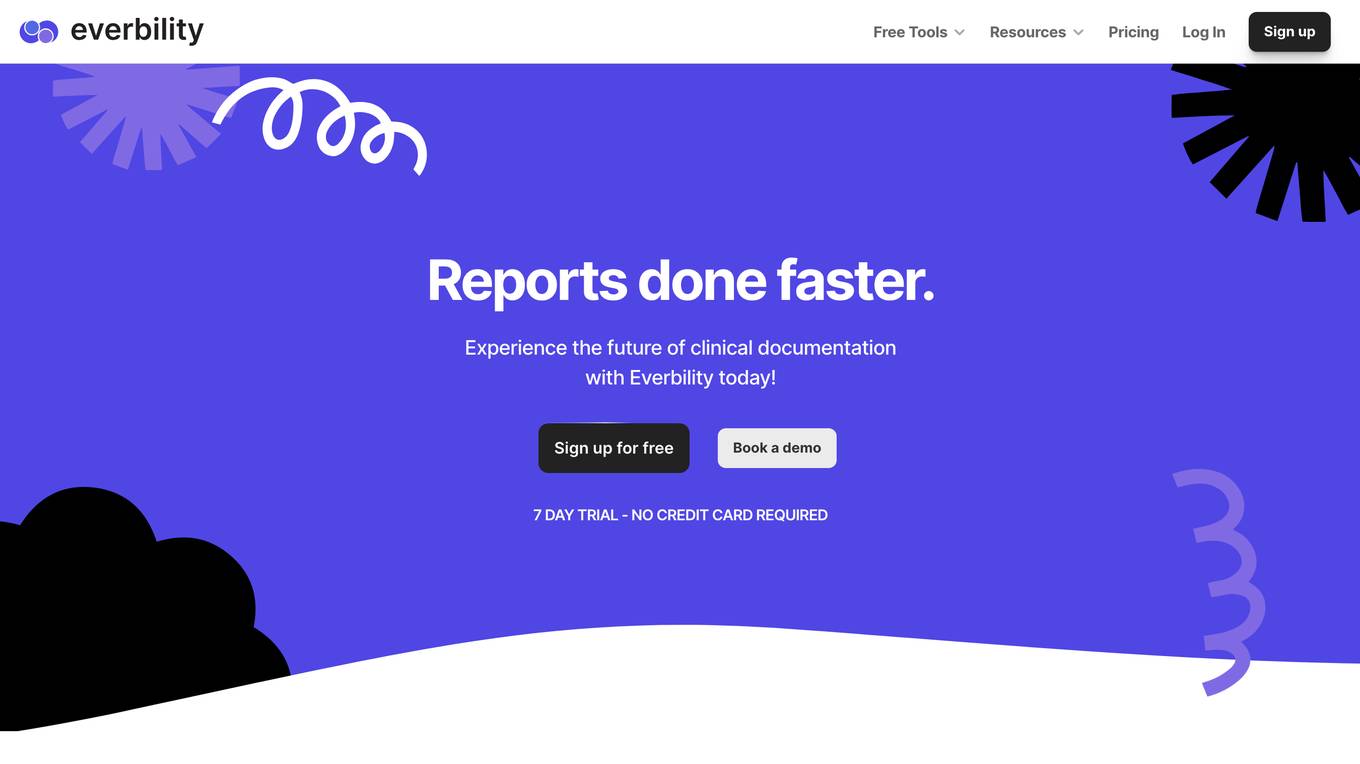
Everbility
Everbility is an AI-powered clinical documentation tool designed for Allied Health Professionals. It helps in writing reports, synthesizing client notes, brainstorming ideas, and focusing on client care. The tool saves time by generating progress notes, letters, and assessment reports, while ensuring data privacy and compliance with regulations like HIPAA and Australian Privacy Principles.
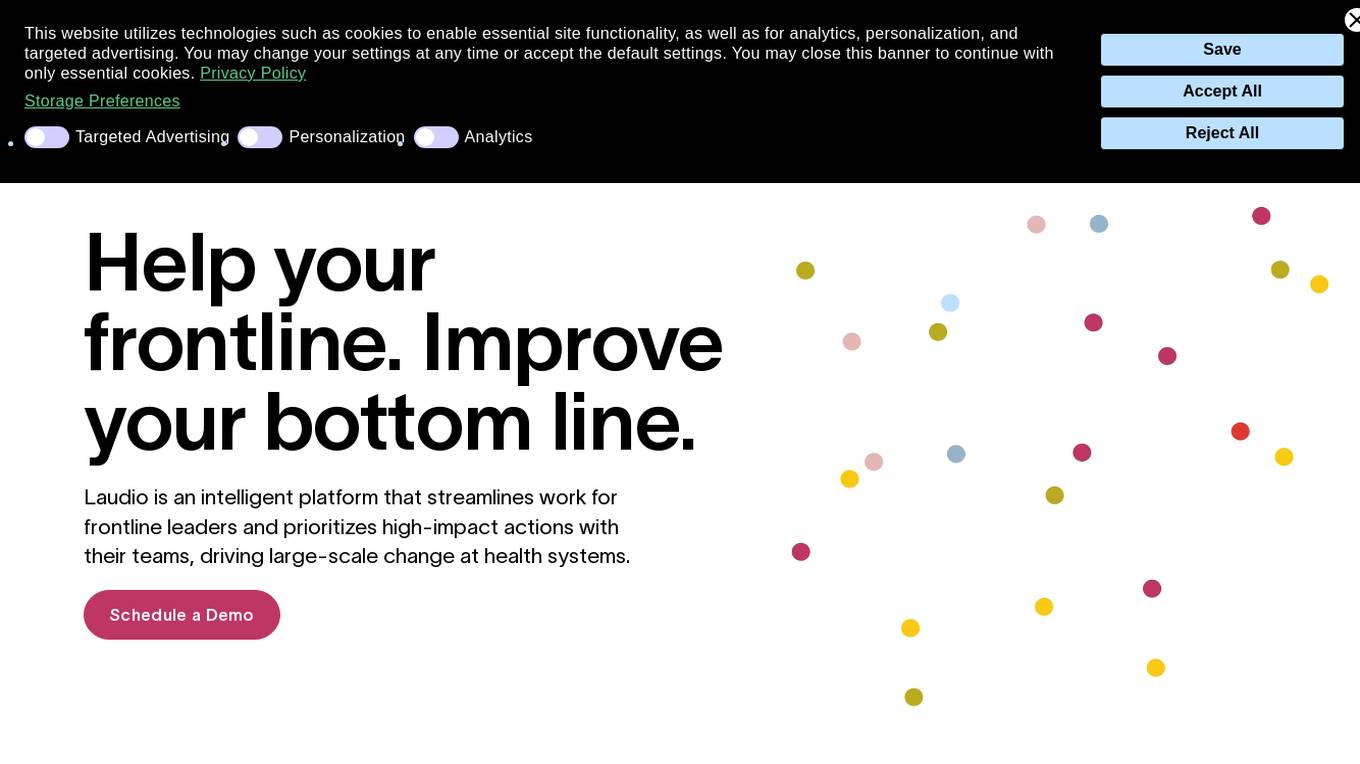
Laudio
Laudio is an intelligent platform designed to help frontline leaders in health systems streamline their work and prioritize high-impact actions with their teams. By integrating essential workflows and leveraging AI technology, Laudio aims to drive large-scale change by saving time, standardizing best practices, and improving employee engagement and patient experience.
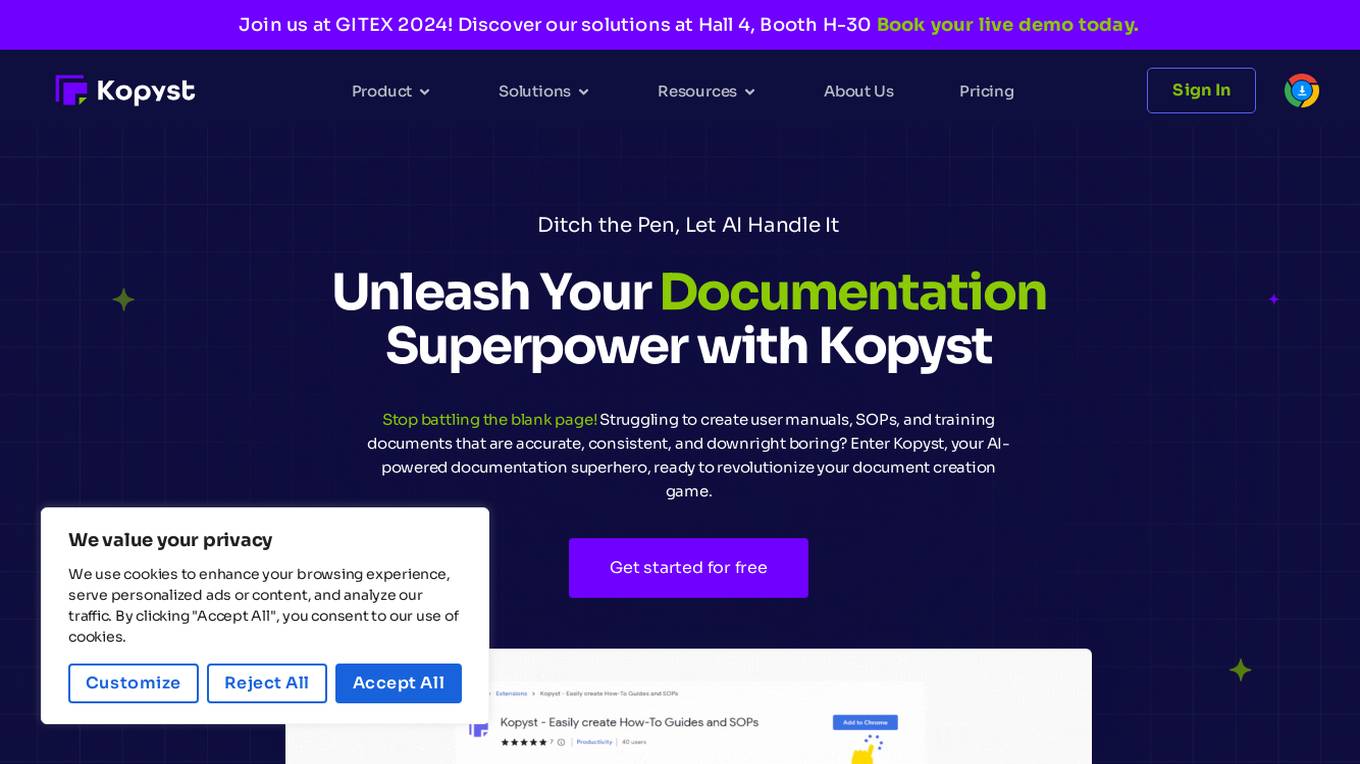
Kopyst
Kopyst is an AI-powered documentation tool that revolutionizes the process of creating engaging video and documents. It helps users streamline workflows, create user manuals, SOPs, and training documents with unmatched accuracy and efficiency. Kopyst offers features like instant documentation, versatile application for various document types, AI-powered intelligence, easy sharing and collaboration, and seamless integration with existing tools. The application empowers users to save time, reduce errors, optimize resources, and enhance productivity in documentation tasks.
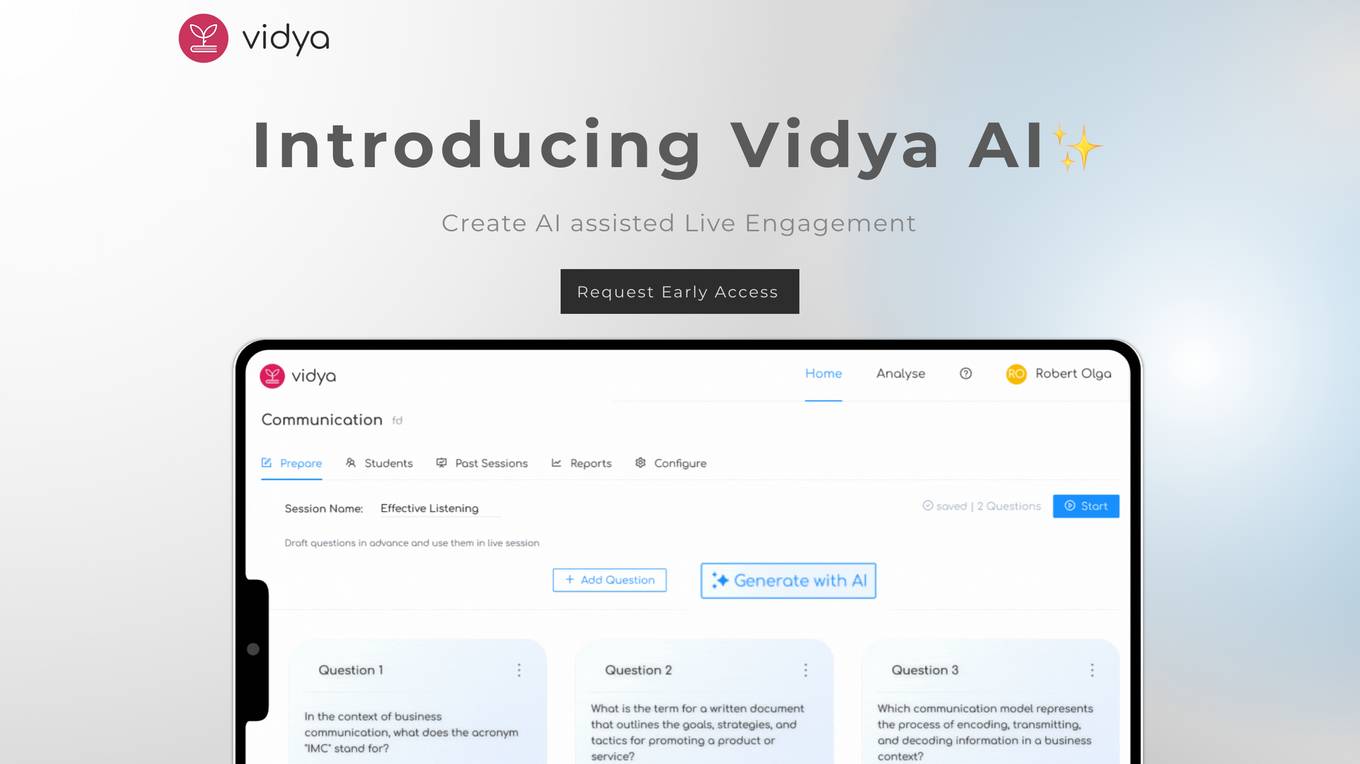
Vidya.us
Vidya.us is an AI-powered platform designed to enhance student engagement by generating thought-provoking and customized questions for effective collaboration in educational settings. The platform offers an AI question generator to simplify classroom engagement, unlimited question libraries for collaboration, and live classroom parameter measurement. Vidya.us aims to streamline content creation and delivery in schools, colleges, and workplaces through innovative AI technology.
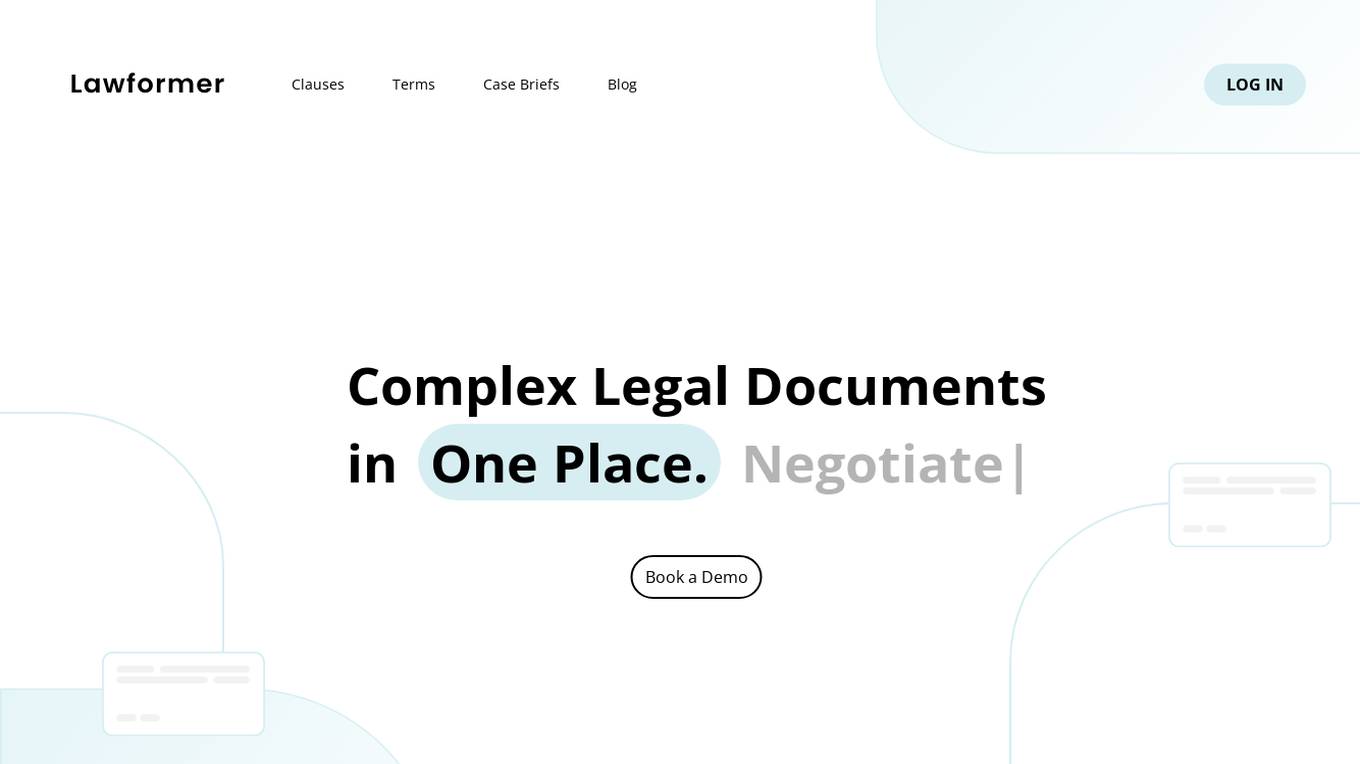
Lawformer
Lawformer is an AI-powered tool designed to simplify the process of handling complex legal documents. It offers an extensive database of attorney-drafted clauses and terms for any contract, along with a learning platform to enhance practical skills in contract drafting. Users can create a personalized library, manage contract knowledge efficiently, and find relevant contract clauses quickly. Lawformer has been serving Silicon Valley startups and the UK's entrepreneurial community since 2009 and 2015, respectively, and is recognized as an international platform for online payments. The platform is trusted by legal professionals and students alike for its comprehensive resources and user-friendly interface.
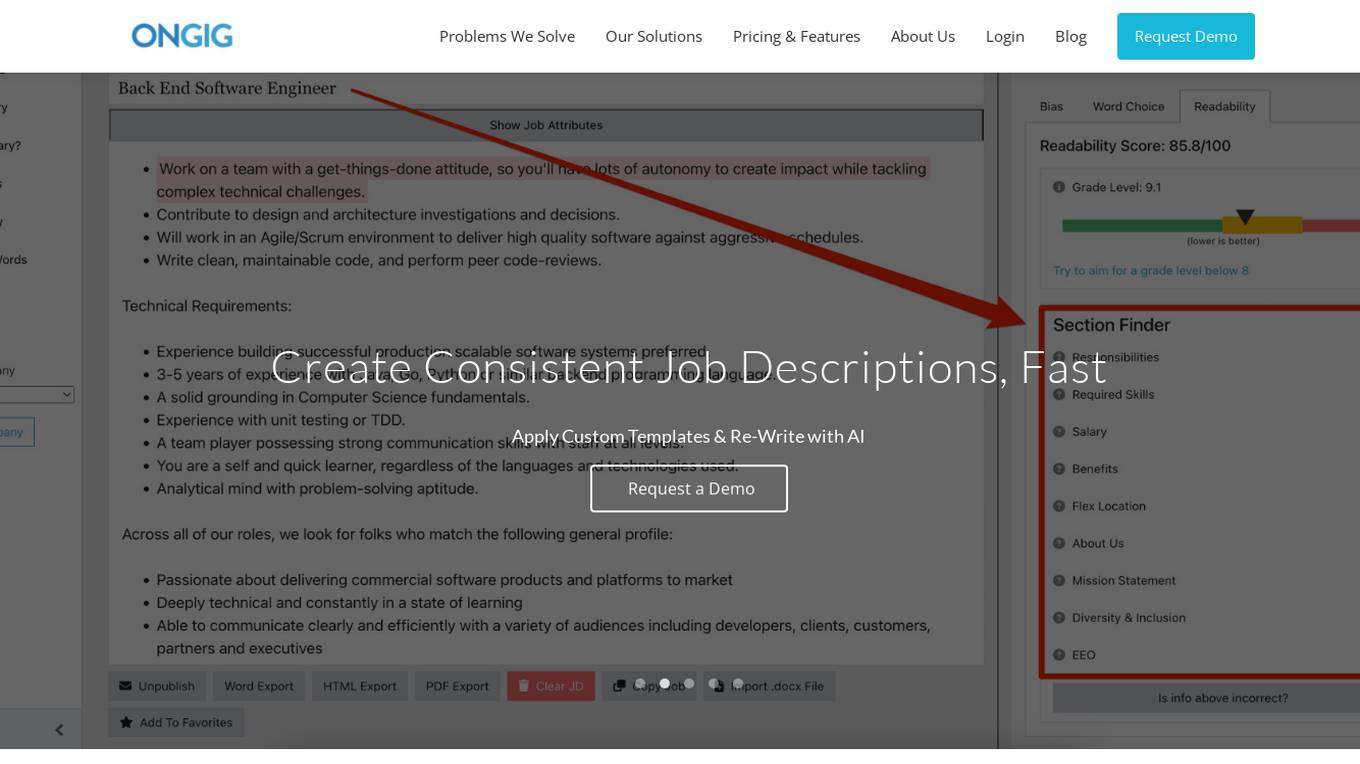
Ongig
Ongig is an AI-powered software that focuses on enhancing job postings for consistency, inclusivity, and efficiency. It offers solutions to common problems in job descriptions such as manual workflows, inconsistent postings, and bias. Ongig's features include a centralized job library, AI for talent acquisition, ATS integration, HRIS automation, and job description API. The application helps standardize job ads, improve readability, build a job library, remove gender-coded language, and provide API-driven insights for smarter hiring decisions.
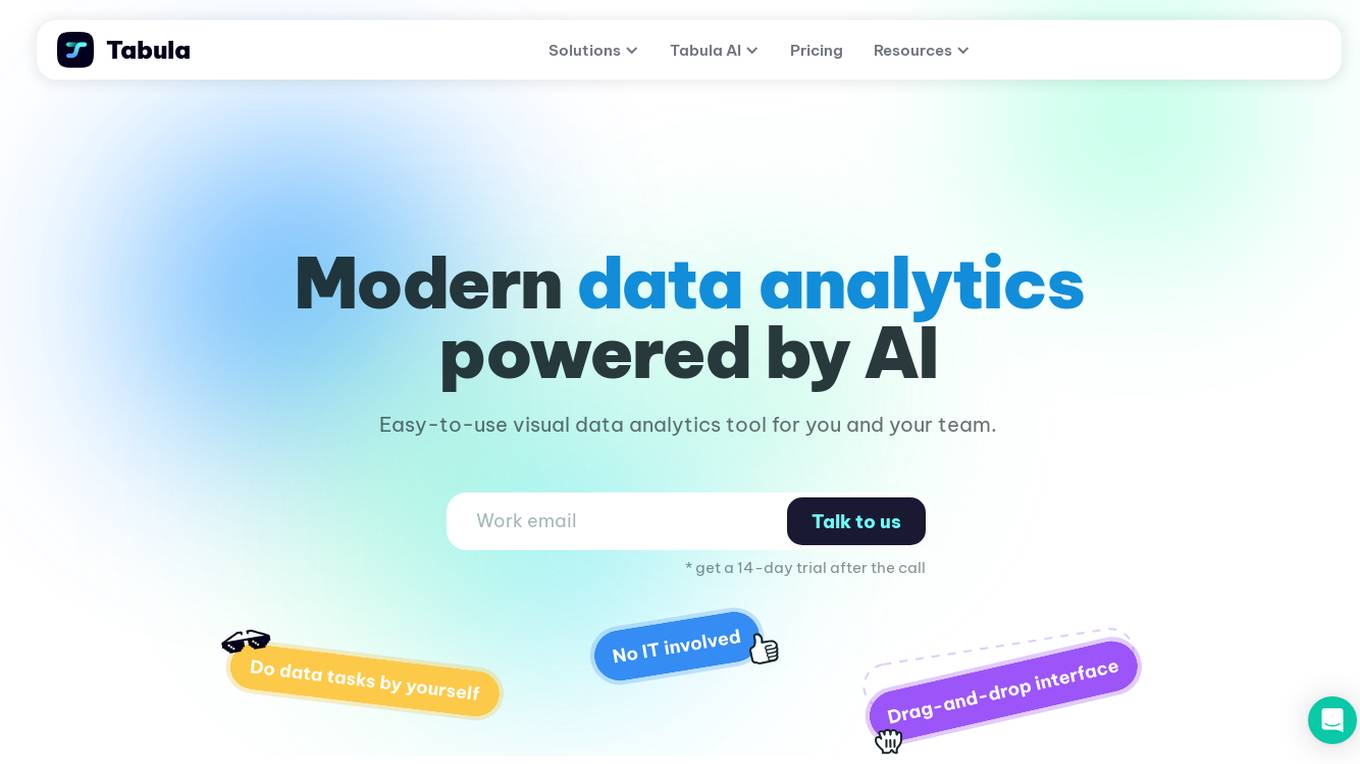
Tabula
Tabula is a visual data analytics tool that uses AI to help businesses get insights from their data. It is easy to use and can be used by anyone, regardless of their technical expertise. Tabula can be used to access and unify data from a variety of sources, standardize and blend datasets, add custom metrics, build stunning reports, and automate repetitive tasks. Tabula is integrated with a variety of data sources and platforms, making it easy to get started.

AudioShake
AudioShake is a cloud-based audio processing platform that uses artificial intelligence (AI) to separate audio into its component parts, such as vocals, music, and effects. This technology can be used for a variety of applications, including mixing and mastering, localization and captioning, interactive audio, and sync licensing.
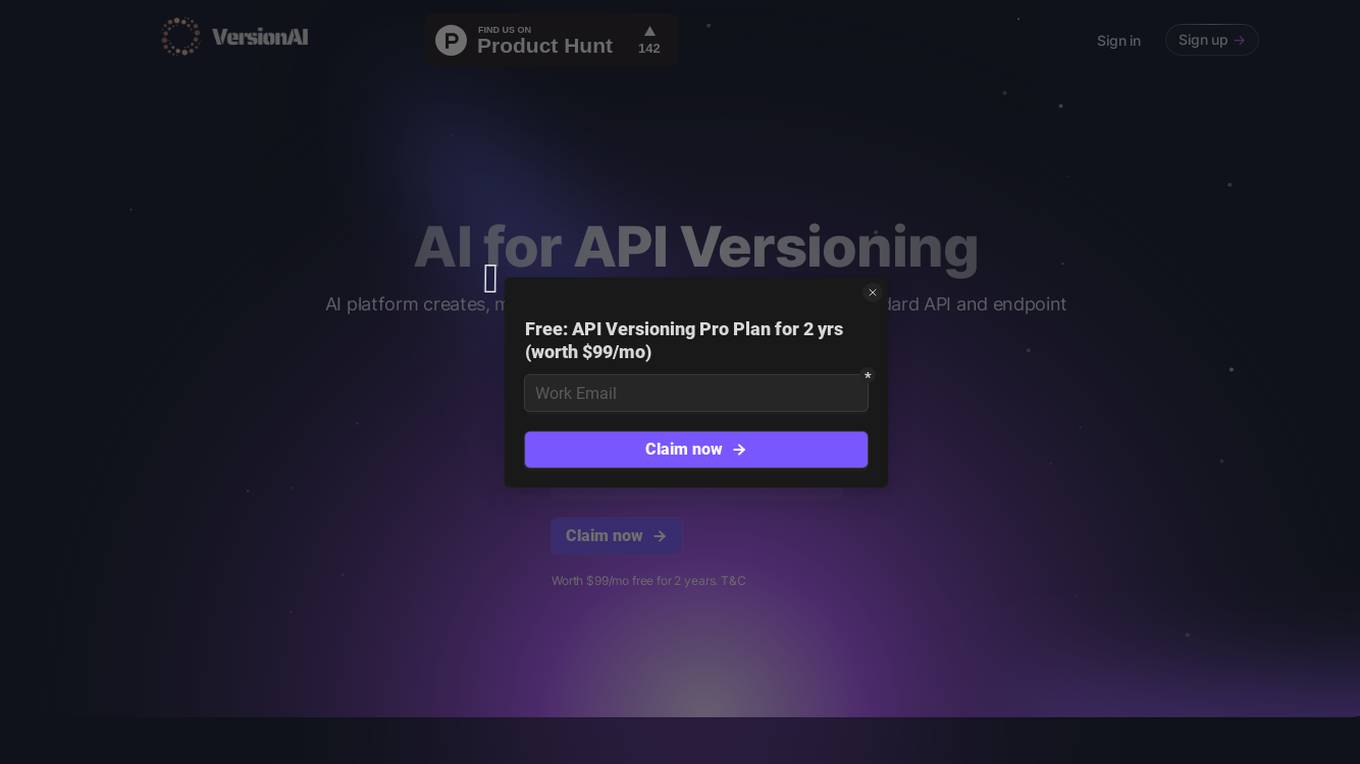
Apiversion.dev
Apiversion.dev is an AI-powered API versioning platform that helps developers manage and version their APIs. It provides a range of features to make API versioning easier, including automatic versioning, version deprecation, and version promotion. Apiversion.dev also integrates with popular CI/CD tools to automate the API versioning process.
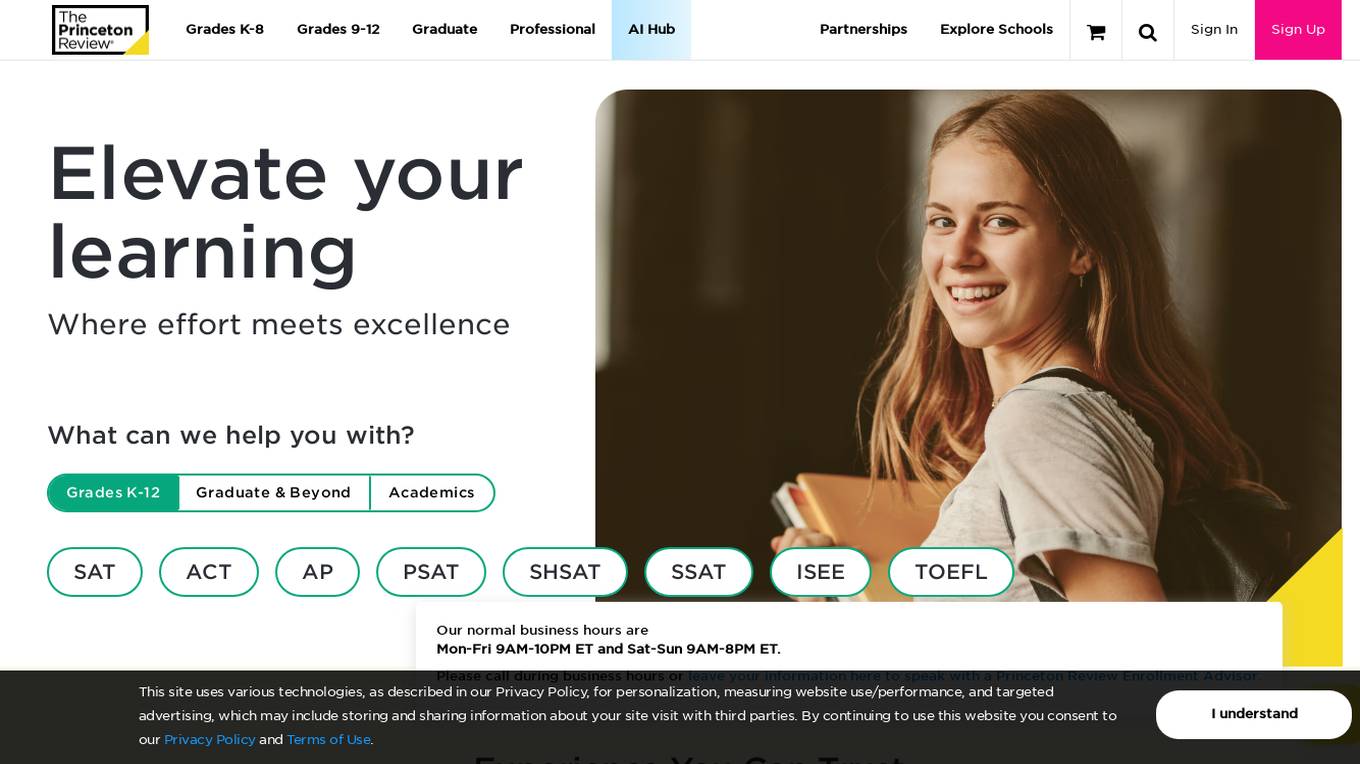
The Princeton Review
The Princeton Review is an AI-based test preparation and tutoring platform offering personalized academic support, test prep courses, and college admissions counseling. With over 43 years of industry experience and a track record of helping millions of students, The Princeton Review uses sophisticated AI technology to provide students with tailored learning experiences, expert-led videos, interactive reports, and feedback tools for essays and homework. The platform covers a wide range of subjects and exams, from K-12 academics to graduate and professional tests like SAT, ACT, MCAT, LSAT, GRE, GMAT, and more. Additionally, it offers services for college admissions counseling, school partnerships, and international licensing.
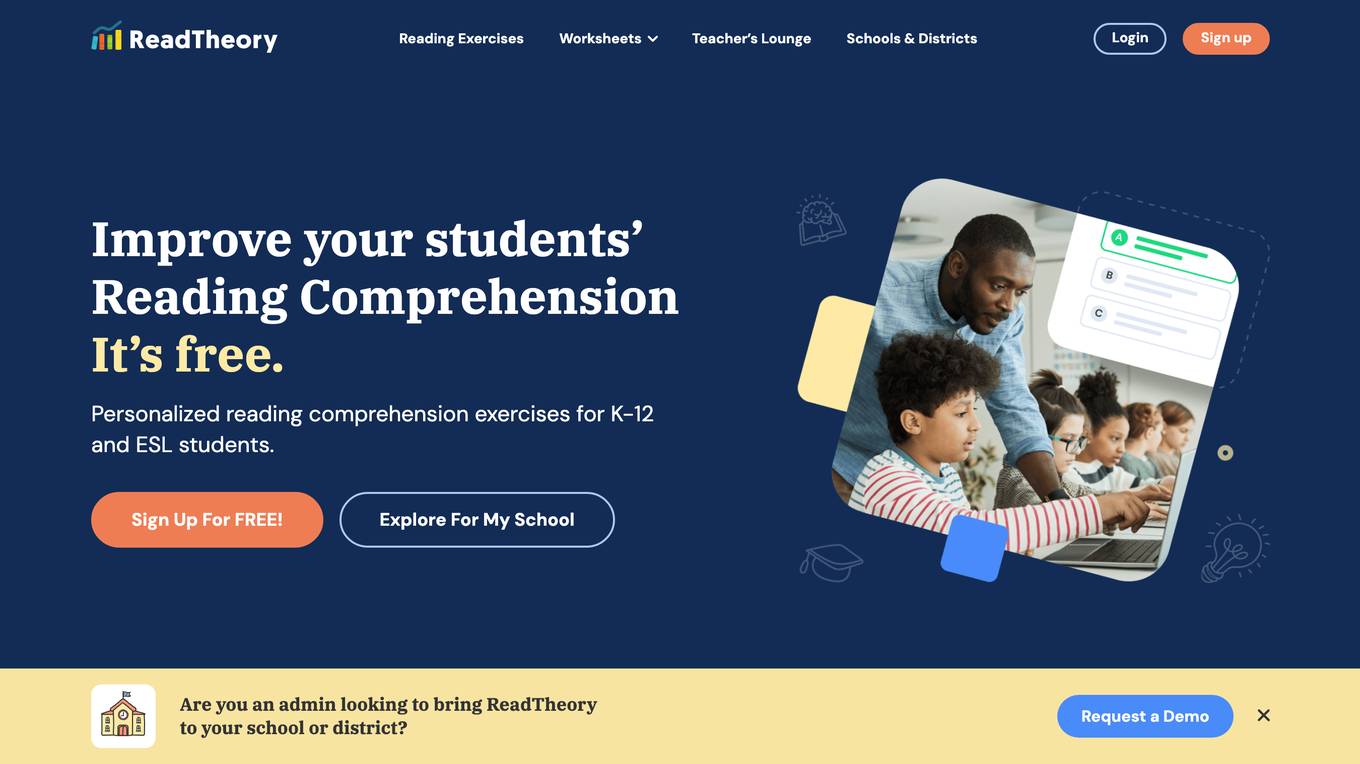
ReadTheory
ReadTheory is a free online reading comprehension practice tool for students and teachers. It offers personalized reading comprehension exercises for grades K-12 and ESL students, with adaptive technology that adjusts to each student's specific reading level. ReadTheory also provides teachers with easy-to-use reporting and thousands of interactive exercises and worksheets. With ReadTheory, teachers can save time with automatic marking, track individual student and class progress in real-time, and motivate students to read with engaging class competitions, badges, and prizes.
20 - Open Source AI Tools
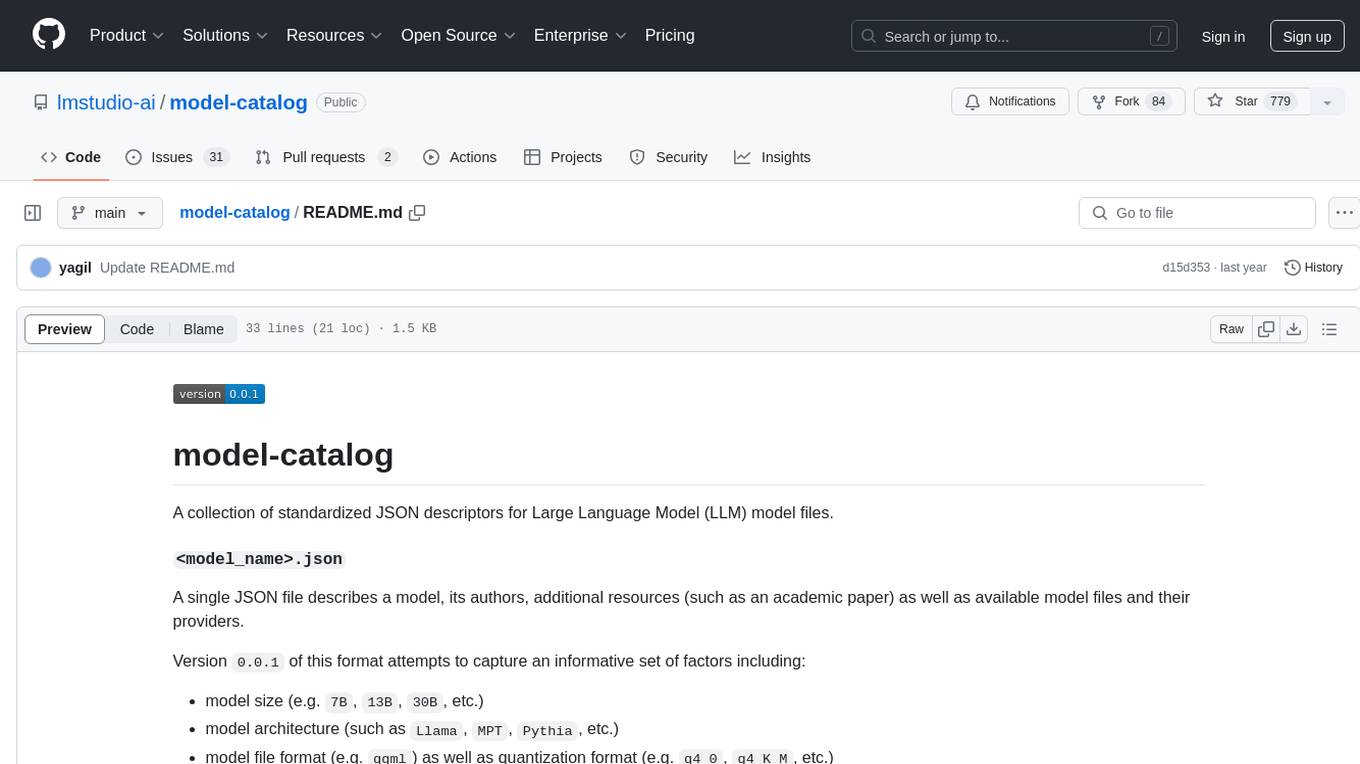
model-catalog
model-catalog is a repository containing standardized JSON descriptors for Large Language Model (LLM) model files. Each model is described in a JSON file with details about the model, authors, additional resources, available model files, and providers. The format captures factors like model size, architecture, file format, and quantization format. A Github action merges individual JSON files from the `models/` directory into a `catalog.json` file, which is validated using a JSON schema. Contributors can help by adding new model JSON files following the contribution process.
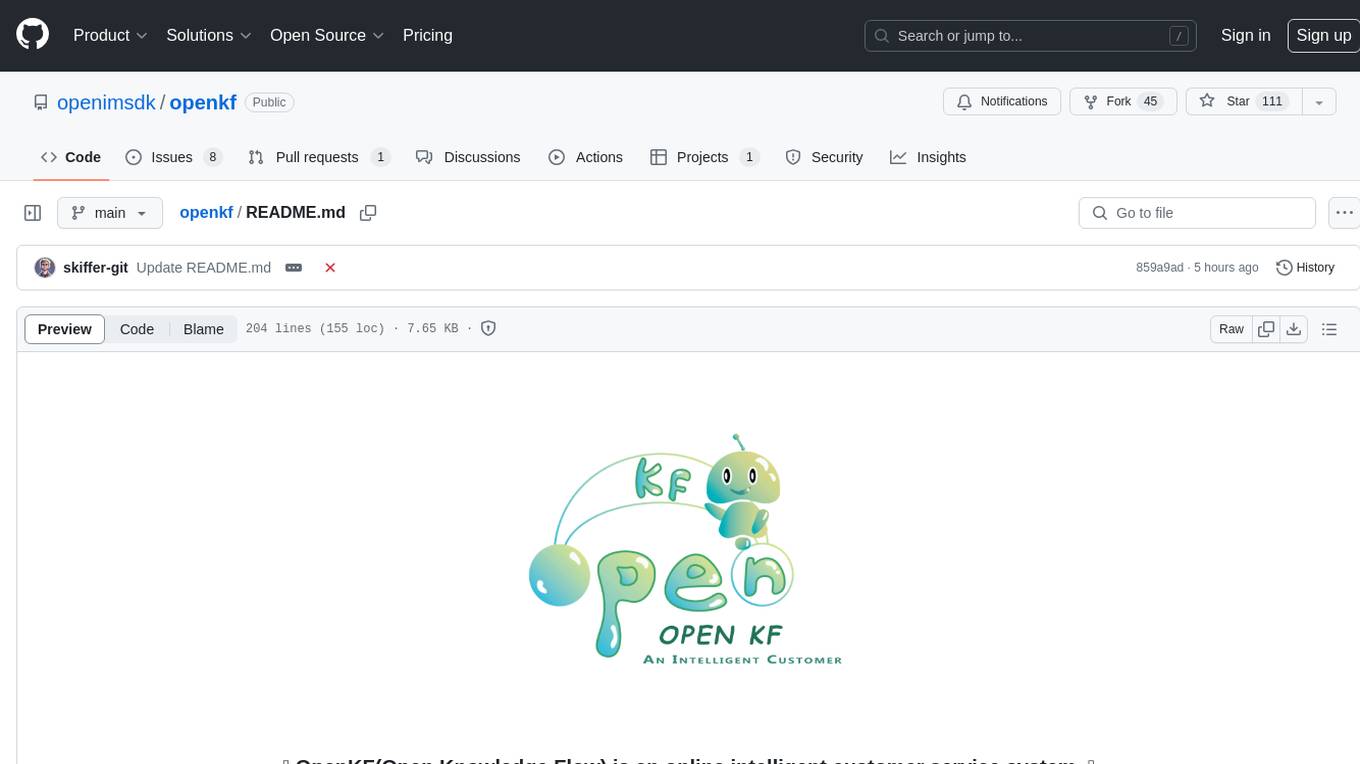
openkf
OpenKF (Open Knowledge Flow) is an online intelligent customer service system. It is an open-source customer service system based on OpenIM, supporting LLM (Local Knowledgebase) customer service and multi-channel customer service. It is easy to integrate with third-party systems, deploy, and perform secondary development. The system provides features like login page, config page, dashboard page, platform page, and session page. Users can quickly get started with OpenKF by following the installation and run instructions. The architecture follows MVC design with a standardized directory structure. The community encourages involvement through community meetings, contributions, and development. OpenKF is licensed under the Apache 2.0 license.
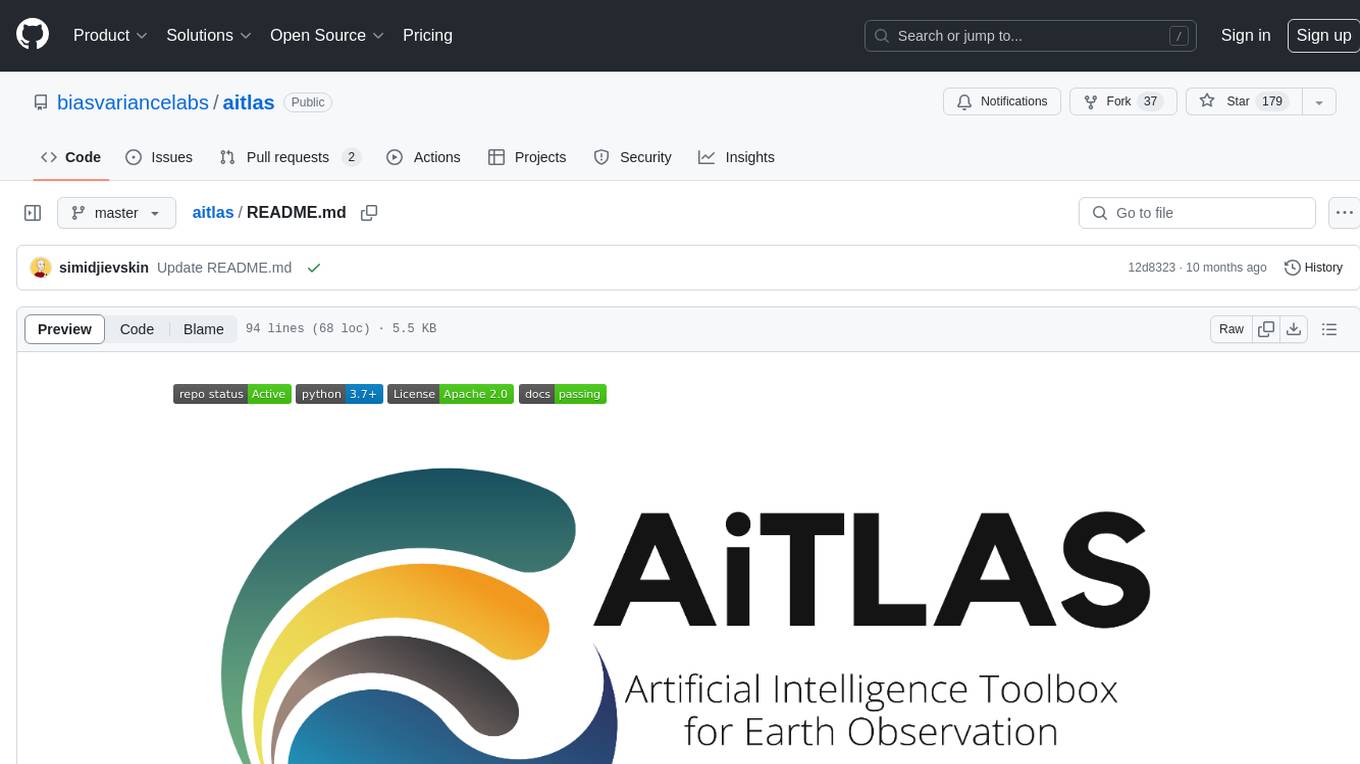
aitlas
The AiTLAS toolbox (Artificial Intelligence Toolbox for Earth Observation) includes state-of-the-art machine learning methods for exploratory and predictive analysis of satellite imagery as well as a repository of AI-ready Earth Observation (EO) datasets. It can be easily applied for a variety of Earth Observation tasks, such as land use and cover classification, crop type prediction, localization of specific objects (semantic segmentation), etc. The main goal of AiTLAS is to facilitate better usability and adoption of novel AI methods (and models) by EO experts, while offering easy access and standardized format of EO datasets to AI experts which allows benchmarking of various existing and novel AI methods tailored for EO data.
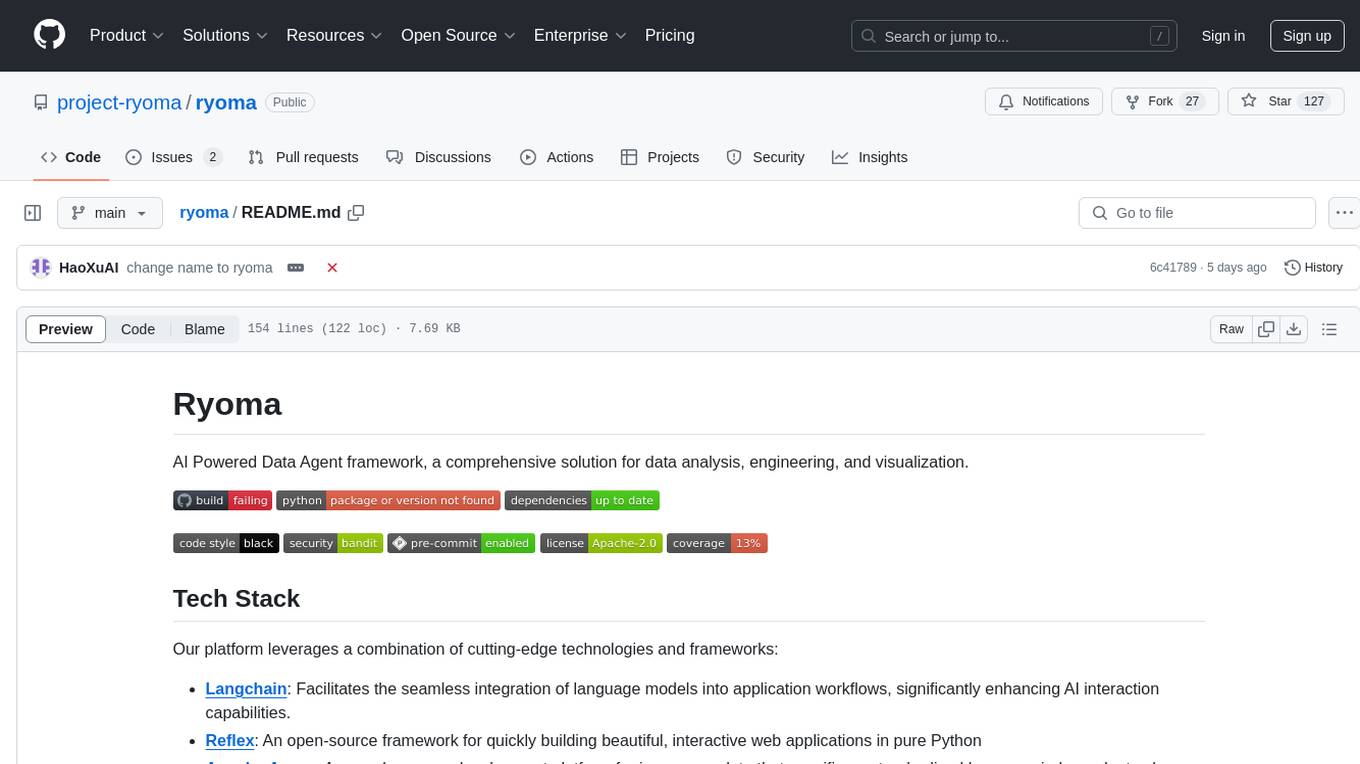
ryoma
Ryoma is an AI Powered Data Agent framework that offers a comprehensive solution for data analysis, engineering, and visualization. It leverages cutting-edge technologies like Langchain, Reflex, Apache Arrow, Jupyter Ai Magics, Amundsen, Ibis, and Feast to provide seamless integration of language models, build interactive web applications, handle in-memory data efficiently, work with AI models, and manage machine learning features in production. Ryoma also supports various data sources like Snowflake, Sqlite, BigQuery, Postgres, MySQL, and different engines like Apache Spark and Apache Flink. The tool enables users to connect to databases, run SQL queries, and interact with data and AI models through a user-friendly UI called Ryoma Lab.

nlp-llms-resources
The 'nlp-llms-resources' repository is a comprehensive resource list for Natural Language Processing (NLP) and Large Language Models (LLMs). It covers a wide range of topics including traditional NLP datasets, data acquisition, libraries for NLP, neural networks, sentiment analysis, optical character recognition, information extraction, semantics, topic modeling, multilingual NLP, domain-specific LLMs, vector databases, ethics, costing, books, courses, surveys, aggregators, newsletters, papers, conferences, and societies. The repository provides valuable information and resources for individuals interested in NLP and LLMs.

llms-tools
The 'llms-tools' repository is a comprehensive collection of AI tools, open-source projects, and research related to Large Language Models (LLMs) and Chatbots. It covers a wide range of topics such as AI in various domains, open-source models, chats & assistants, visual language models, evaluation tools, libraries, devices, income models, text-to-image, computer vision, audio & speech, code & math, games, robotics, typography, bio & med, military, climate, finance, and presentation. The repository provides valuable resources for researchers, developers, and enthusiasts interested in exploring the capabilities of LLMs and related technologies.
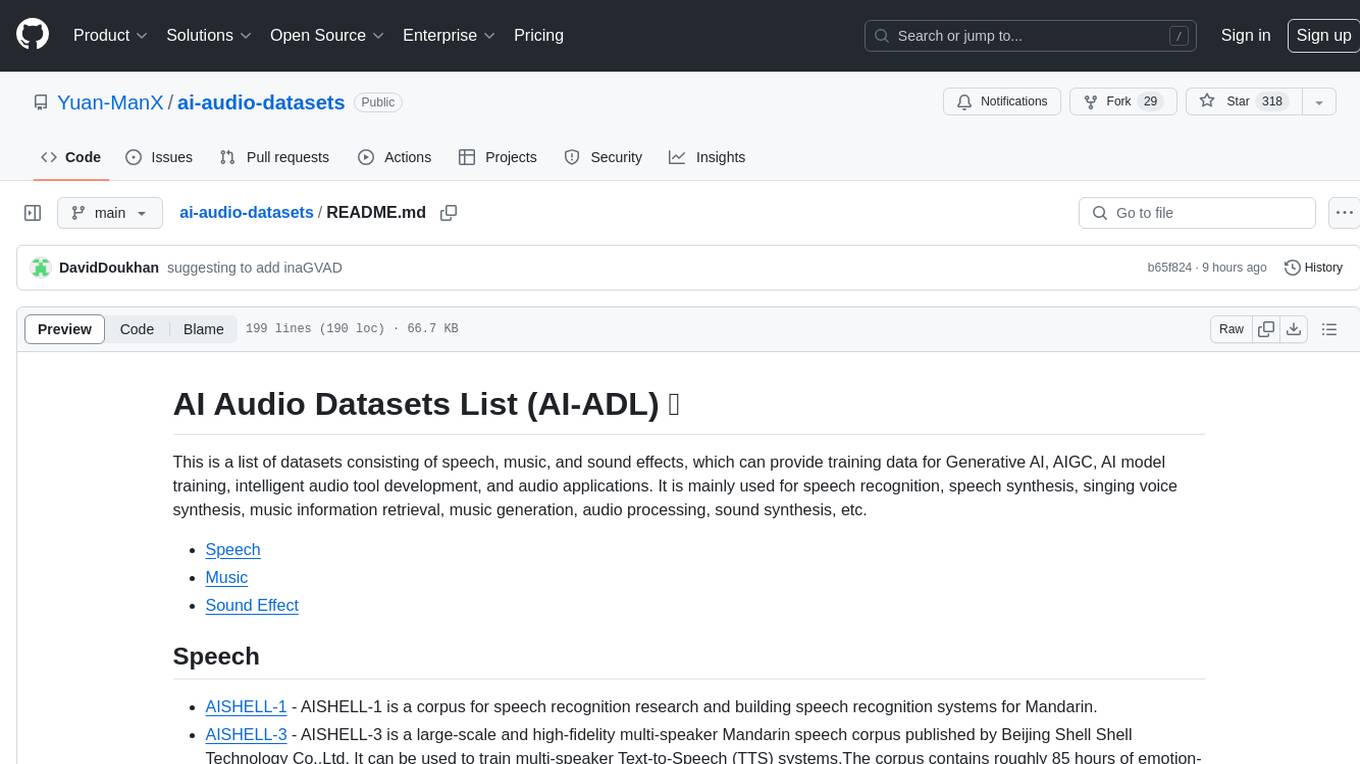
ai-audio-datasets
AI Audio Datasets List (AI-ADL) is a comprehensive collection of datasets consisting of speech, music, and sound effects, used for Generative AI, AIGC, AI model training, and audio applications. It includes datasets for speech recognition, speech synthesis, music information retrieval, music generation, audio processing, sound synthesis, and more. The repository provides a curated list of diverse datasets suitable for various AI audio tasks.
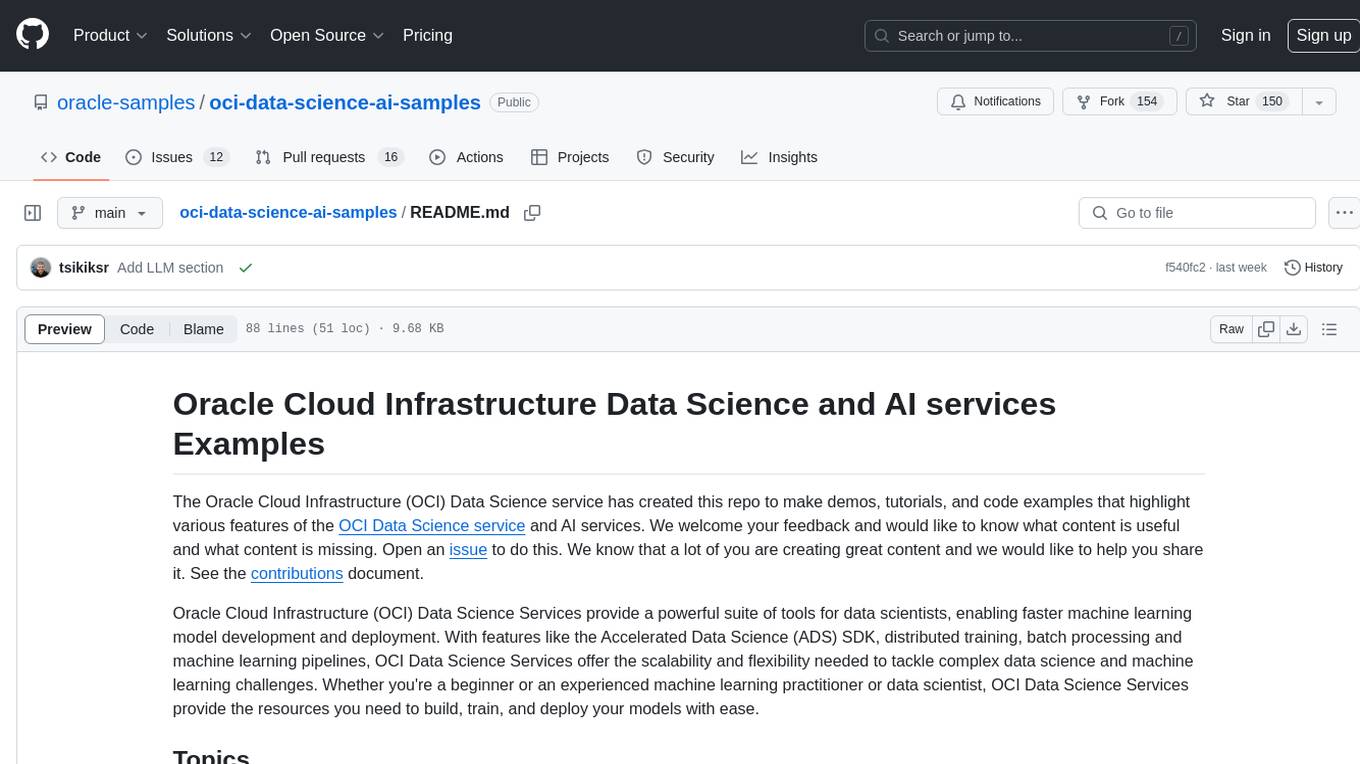
oci-data-science-ai-samples
The Oracle Cloud Infrastructure Data Science and AI services Examples repository provides demos, tutorials, and code examples showcasing various features of the OCI Data Science service and AI services. It offers tools for data scientists to develop and deploy machine learning models efficiently, with features like Accelerated Data Science SDK, distributed training, batch processing, and machine learning pipelines. Whether you're a beginner or an experienced practitioner, OCI Data Science Services provide the resources needed to build, train, and deploy models easily.
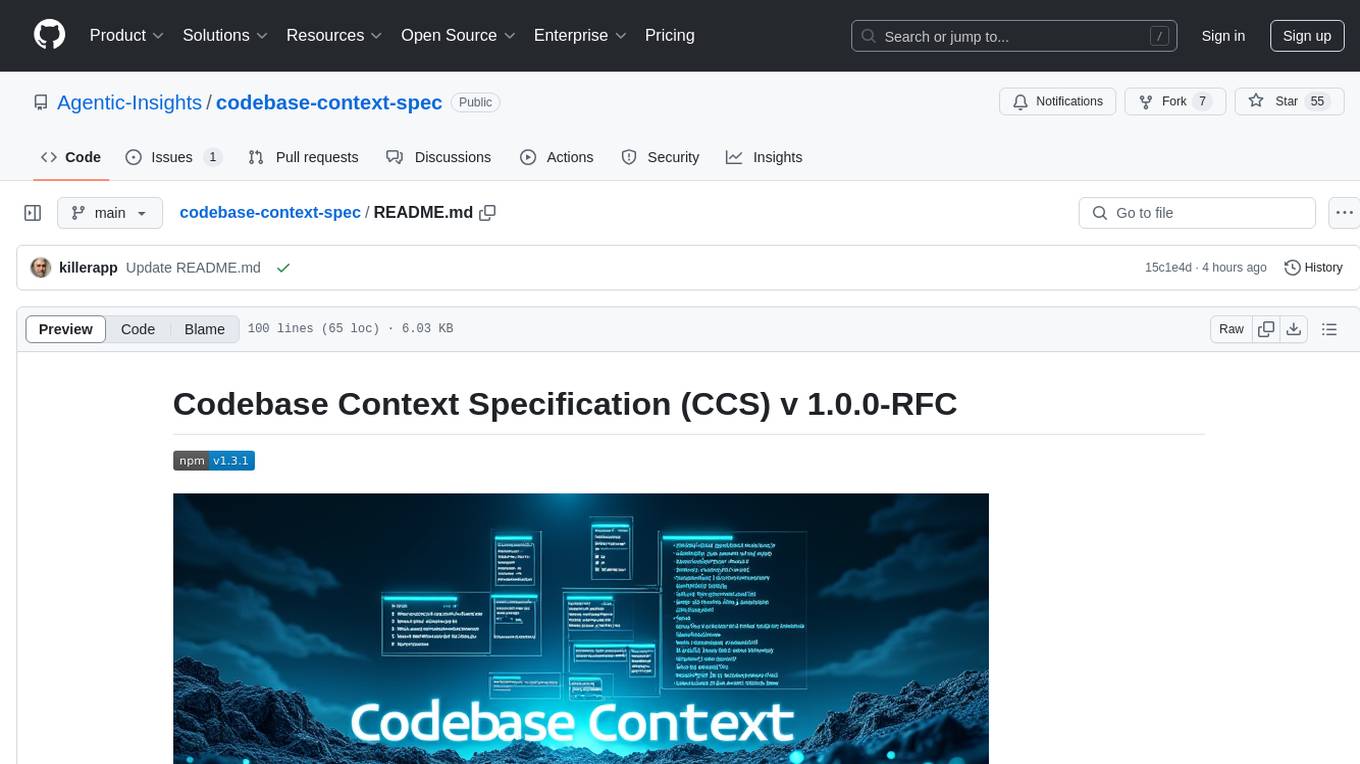
codebase-context-spec
The Codebase Context Specification (CCS) project aims to standardize embedding contextual information within codebases to enhance understanding for both AI and human developers. It introduces a convention similar to `.env` and `.editorconfig` files but focused on documenting code for both AI and humans. By providing structured contextual metadata, collaborative documentation guidelines, and standardized context files, developers can improve code comprehension, collaboration, and development efficiency. The project includes a linter for validating context files and provides guidelines for using the specification with AI assistants. Tooling recommendations suggest creating memory systems, IDE plugins, AI model integrations, and agents for context creation and utilization. Future directions include integration with existing documentation systems, dynamic context generation, and support for explicit context overriding.
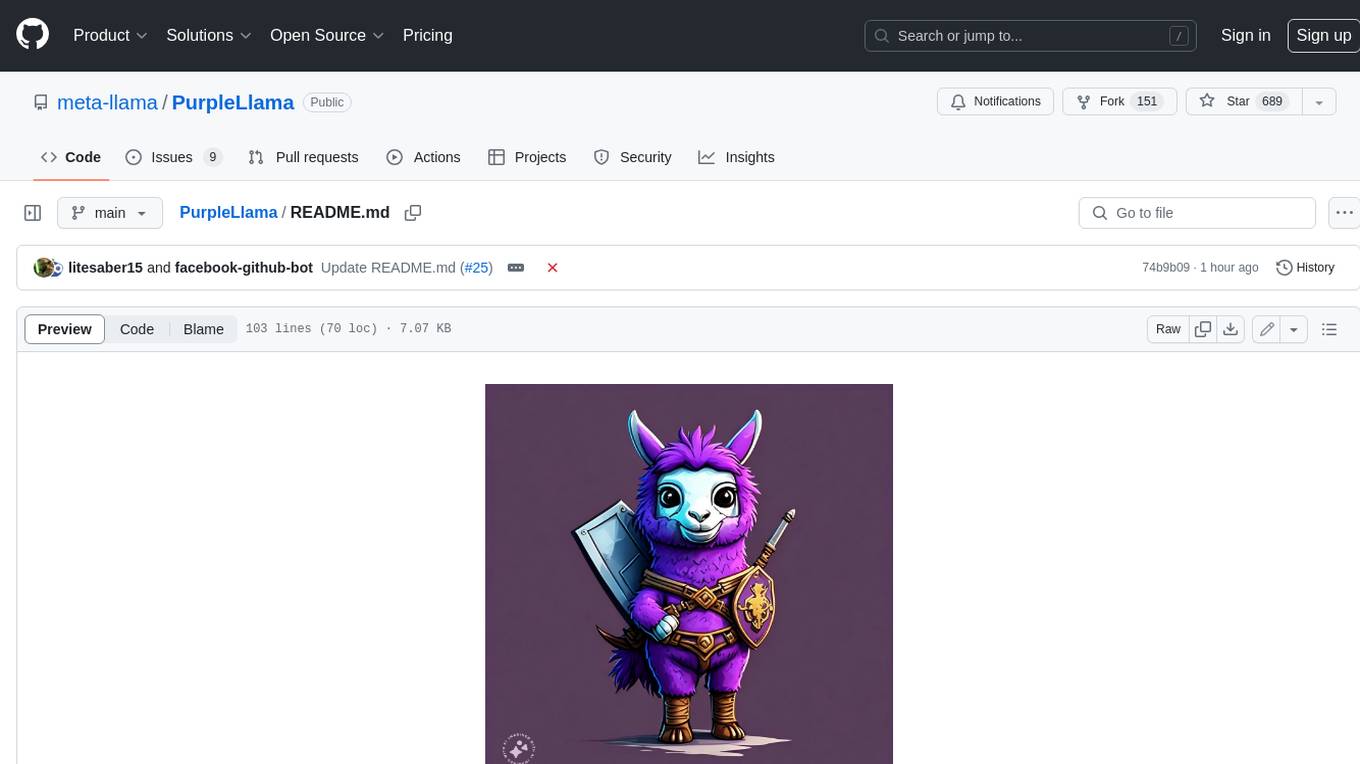
PurpleLlama
Purple Llama is an umbrella project that aims to provide tools and evaluations to support responsible development and usage of generative AI models. It encompasses components for cybersecurity and input/output safeguards, with plans to expand in the future. The project emphasizes a collaborative approach, borrowing the concept of purple teaming from cybersecurity, to address potential risks and challenges posed by generative AI. Components within Purple Llama are licensed permissively to foster community collaboration and standardize the development of trust and safety tools for generative AI.
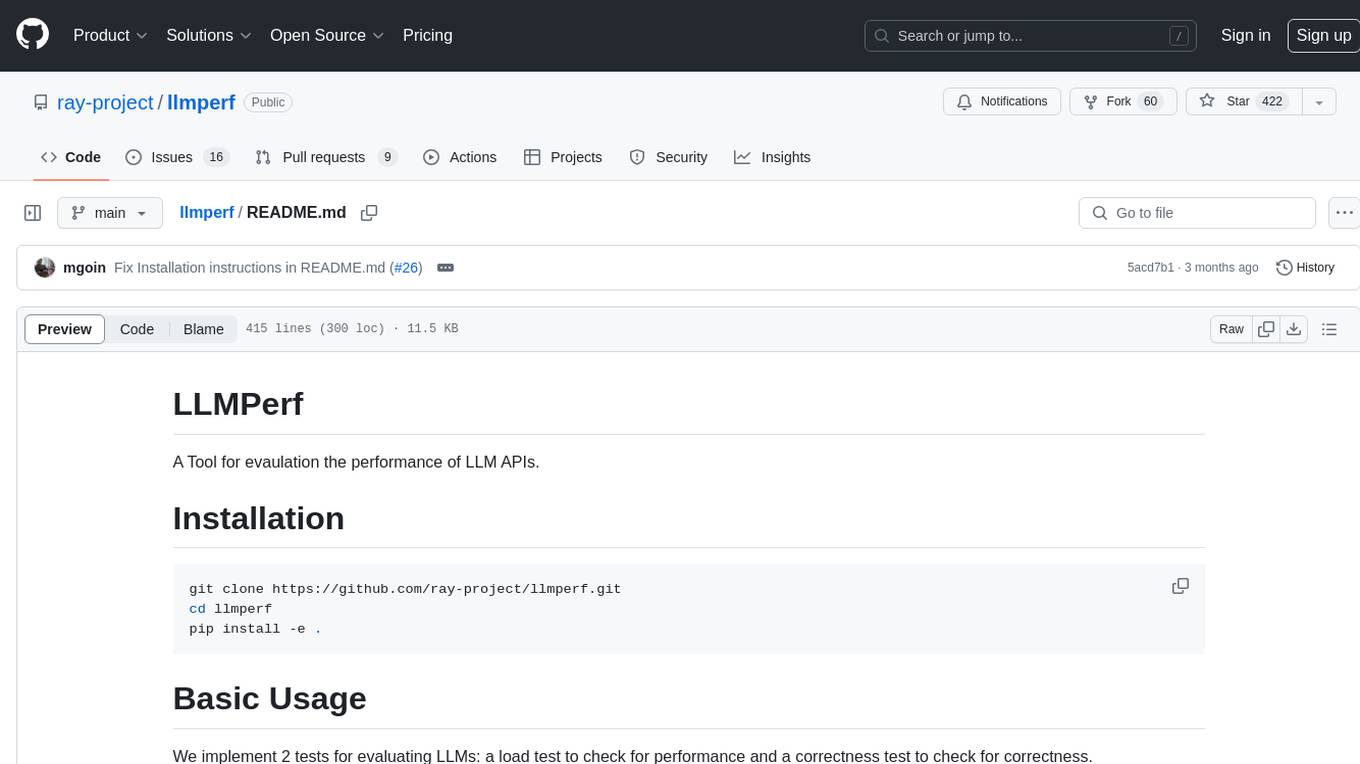
llmperf
LLMPerf is a tool designed for evaluating the performance of Language Model APIs. It provides functionalities for conducting load tests to measure inter-token latency and generation throughput, as well as correctness tests to verify the responses. The tool supports various LLM APIs including OpenAI, Anthropic, TogetherAI, Hugging Face, LiteLLM, Vertex AI, and SageMaker. Users can set different parameters for the tests and analyze the results to assess the performance of the LLM APIs. LLMPerf aims to standardize prompts across different APIs and provide consistent evaluation metrics for comparison.
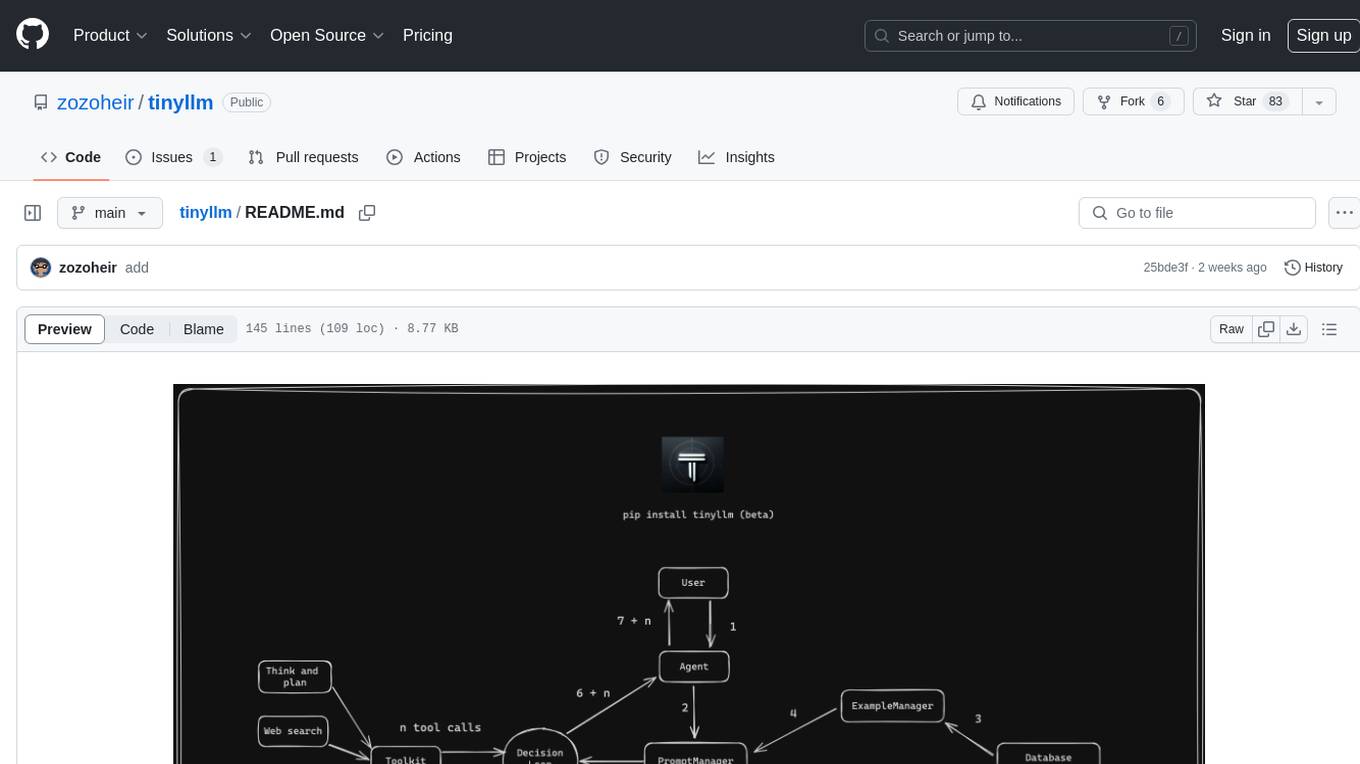
tinyllm
tinyllm is a lightweight framework designed for developing, debugging, and monitoring LLM and Agent powered applications at scale. It aims to simplify code while enabling users to create complex agents or LLM workflows in production. The core classes, Function and FunctionStream, standardize and control LLM, ToolStore, and relevant calls for scalable production use. It offers structured handling of function execution, including input/output validation, error handling, evaluation, and more, all while maintaining code readability. Users can create chains with prompts, LLM models, and evaluators in a single file without the need for extensive class definitions or spaghetti code. Additionally, tinyllm integrates with various libraries like Langfuse and provides tools for prompt engineering, observability, logging, and finite state machine design.
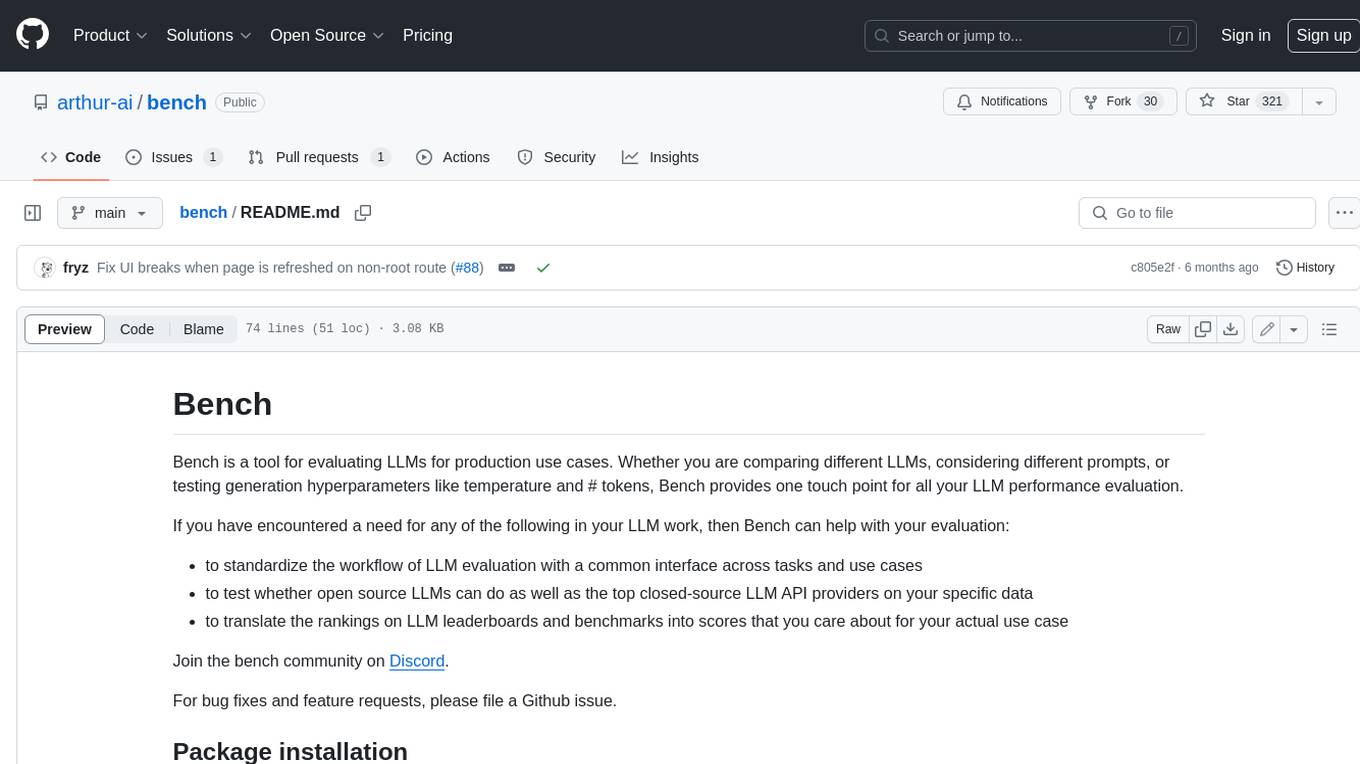
bench
Bench is a tool for evaluating LLMs for production use cases. It provides a standardized workflow for LLM evaluation with a common interface across tasks and use cases. Bench can be used to test whether open source LLMs can do as well as the top closed-source LLM API providers on specific data, and to translate the rankings on LLM leaderboards and benchmarks into scores that are relevant for actual use cases.
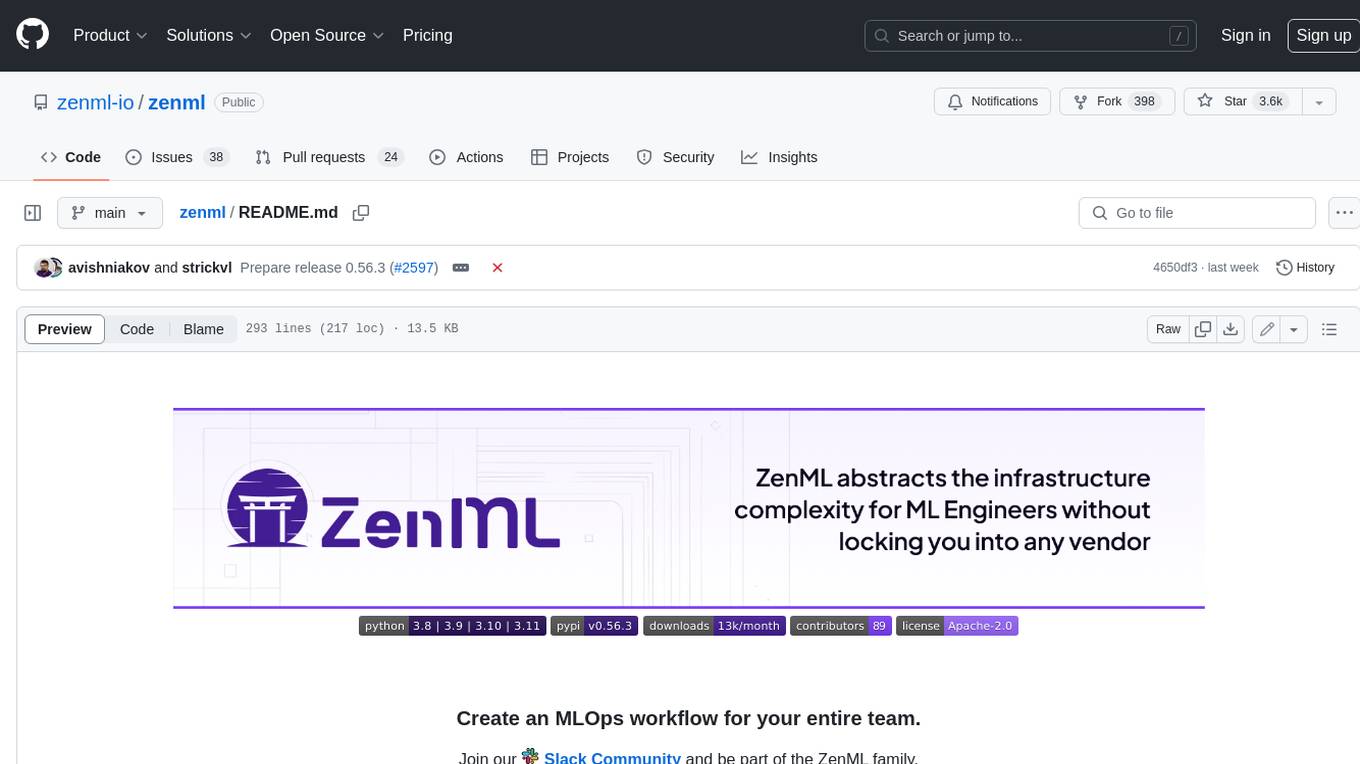
zenml
ZenML is an extensible, open-source MLOps framework for creating portable, production-ready machine learning pipelines. By decoupling infrastructure from code, ZenML enables developers across your organization to collaborate more effectively as they develop to production.
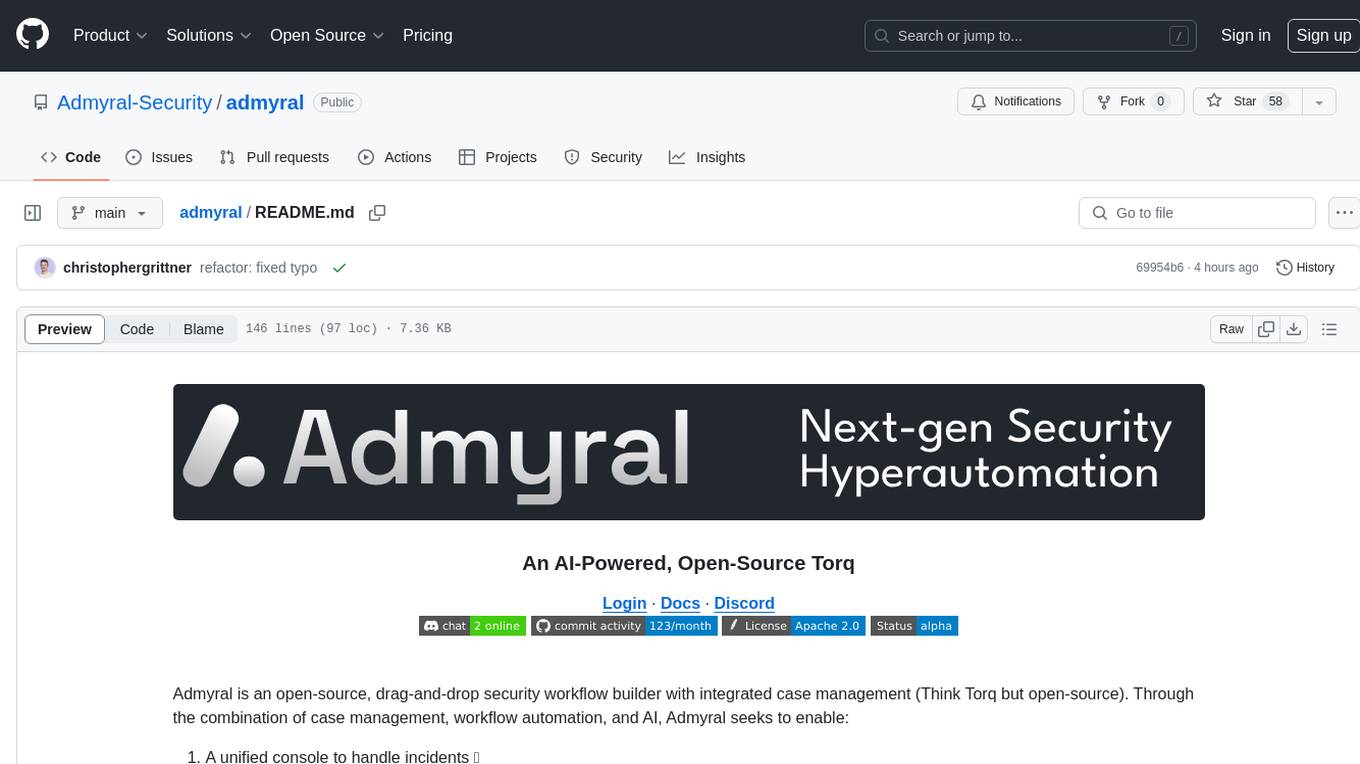
admyral
Admyral is an open-source Cybersecurity Automation & Investigation Assistant that provides a unified console for investigations and incident handling, workflow automation creation, automatic alert investigation, and next step suggestions for analysts. It aims to tackle alert fatigue and automate security workflows effectively by offering features like workflow actions, AI actions, case management, alert handling, and more. Admyral combines security automation and case management to streamline incident response processes and improve overall security posture. The tool is open-source, transparent, and community-driven, allowing users to self-host, contribute, and collaborate on integrations and features.
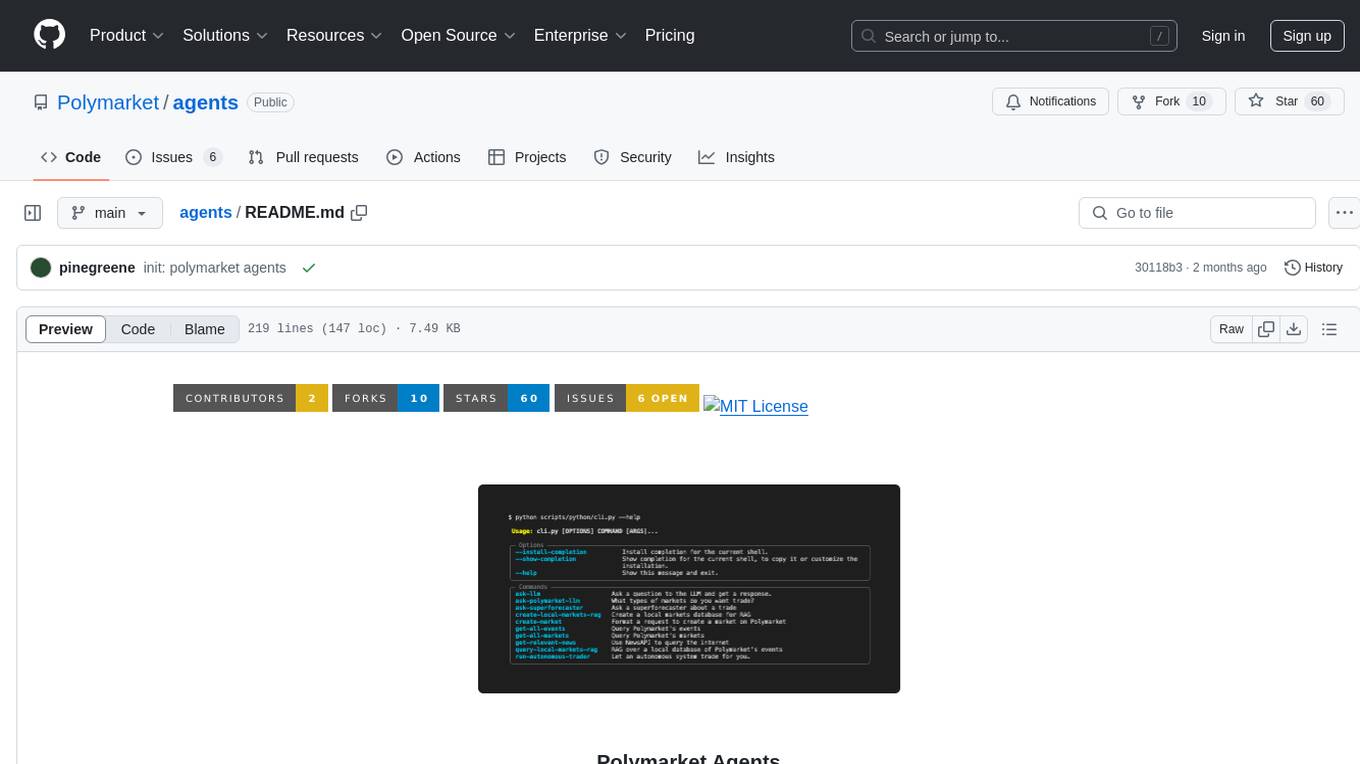
agents
Polymarket Agents is a developer framework and set of utilities for building AI agents to trade autonomously on Polymarket. It integrates with Polymarket API, provides AI agent utilities for prediction markets, supports local and remote RAG, sources data from various services, and offers comprehensive LLM tools for prompt engineering. The architecture features modular components like APIs and scripts for managing local environments, server set-up, and CLI for end-user commands.
3 - OpenAI Gpts
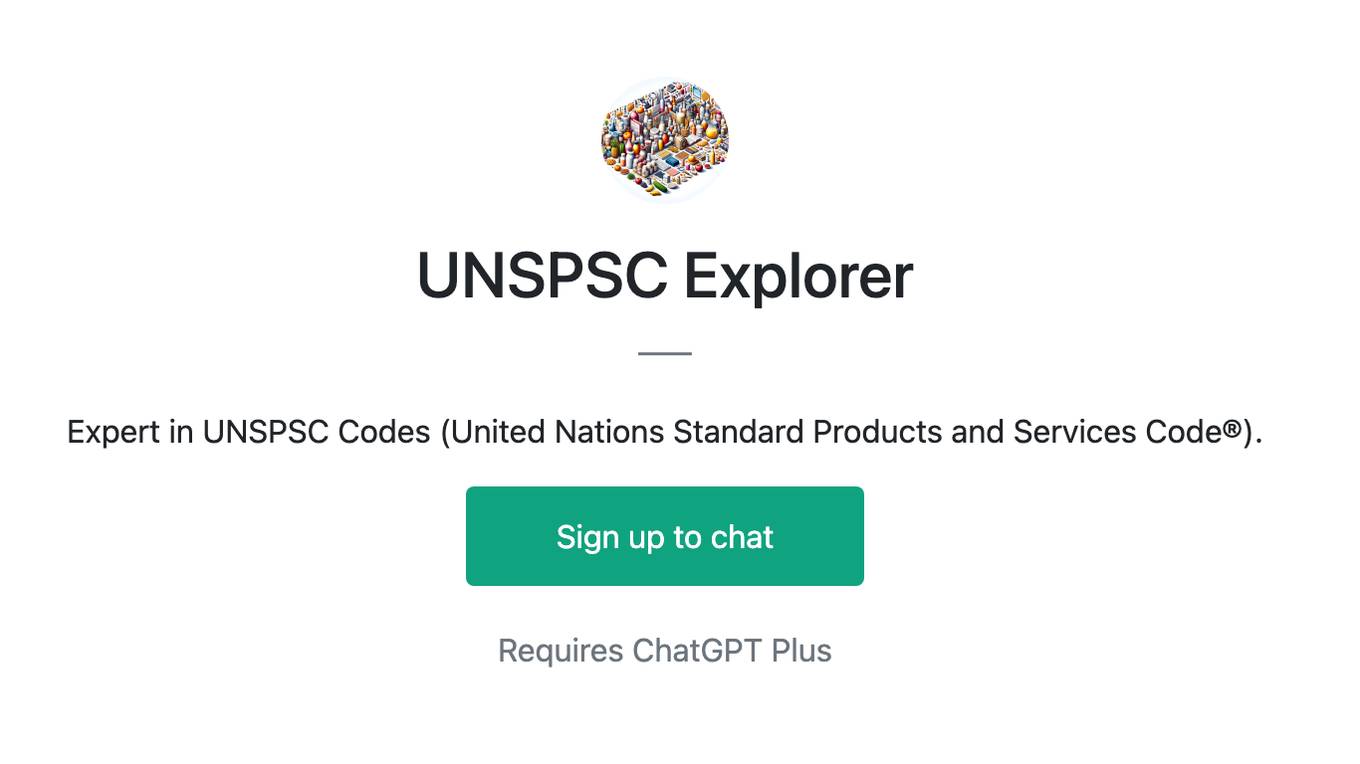
UNSPSC Explorer
Expert in UNSPSC Codes (United Nations Standard Products and Services Code®).

Standardized EV Charging Site Evaluator
Delivers consistent, tailored EV charging site scores.
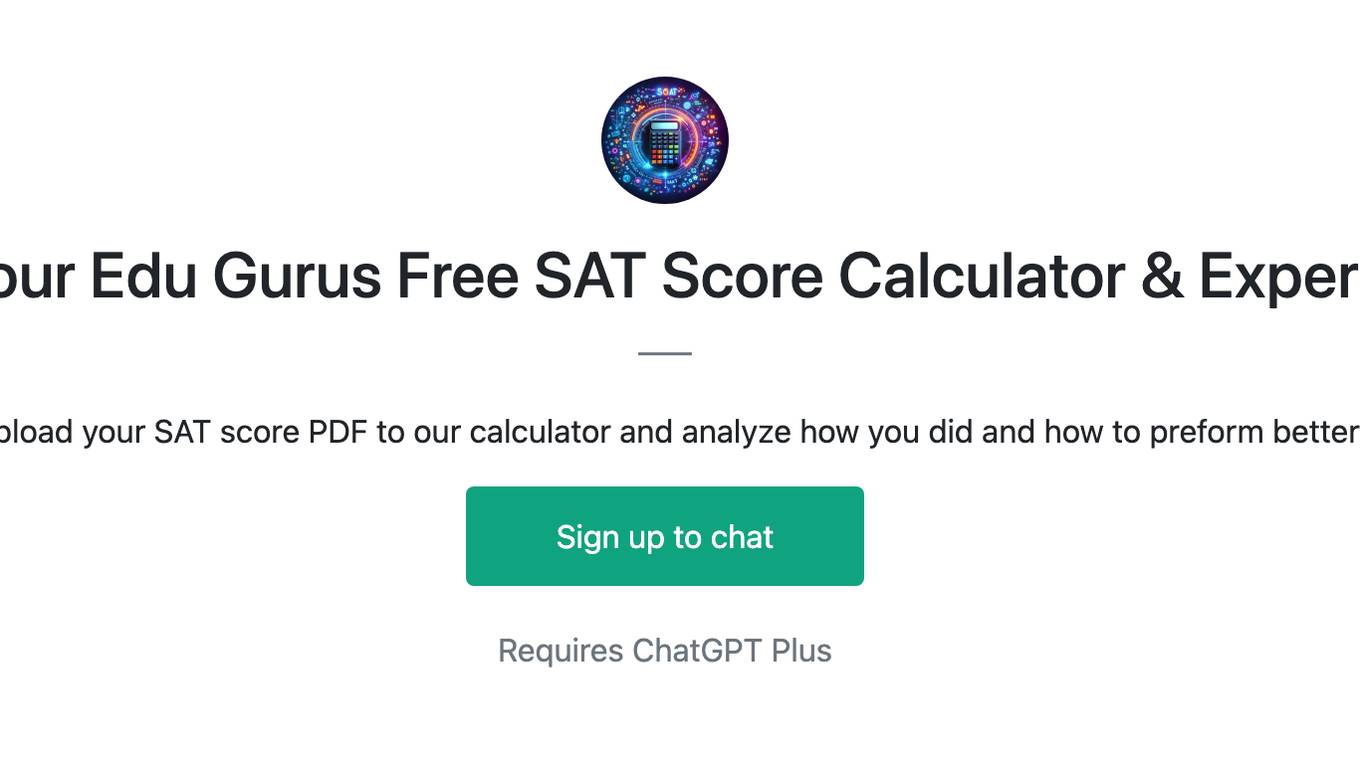
Your Edu Gurus Free SAT Score Calculator & Expert
Upload your SAT score PDF to our calculator and analyze how you did and how to preform better
